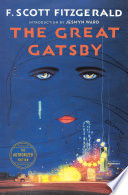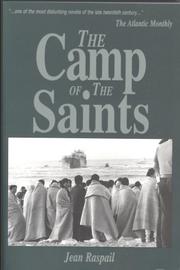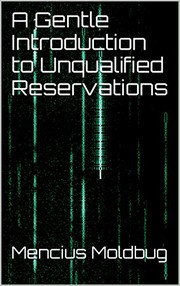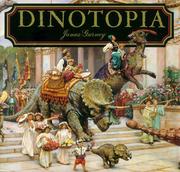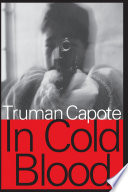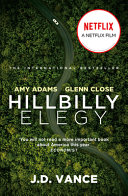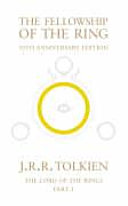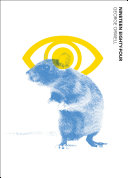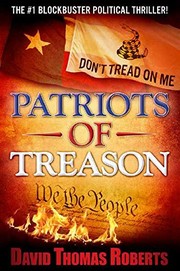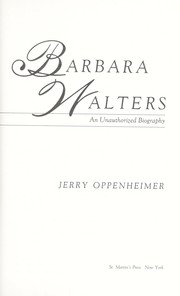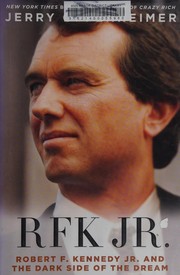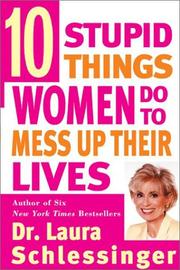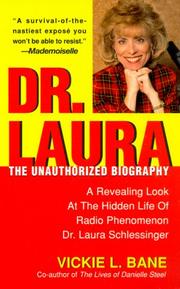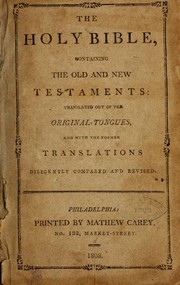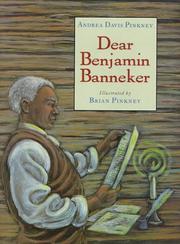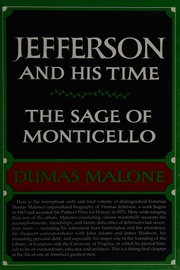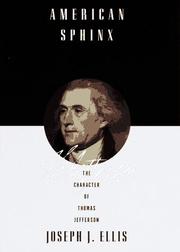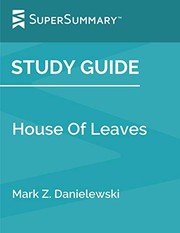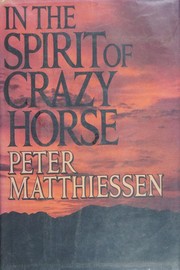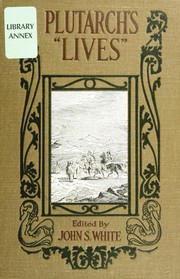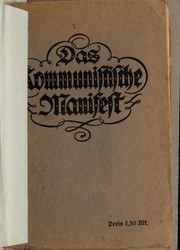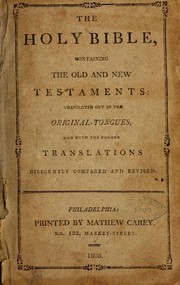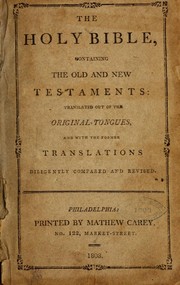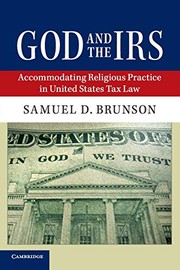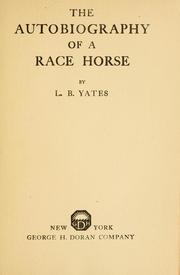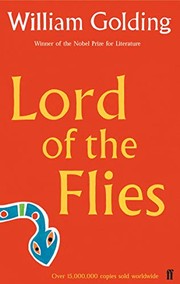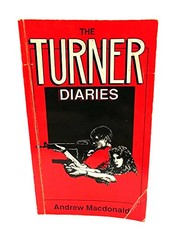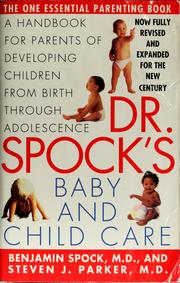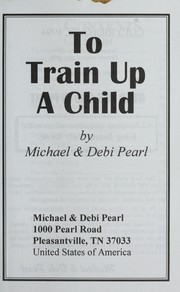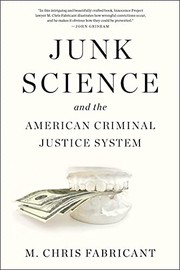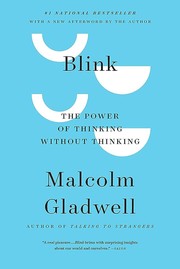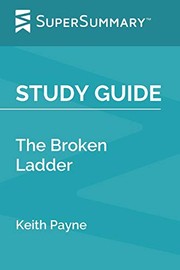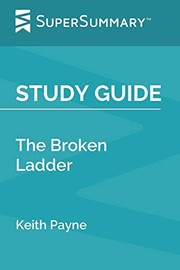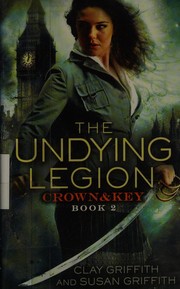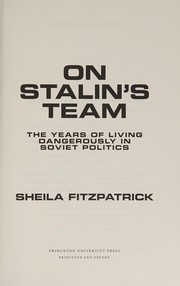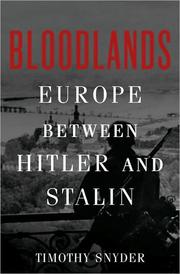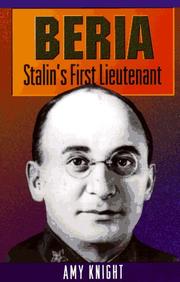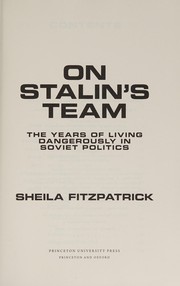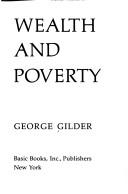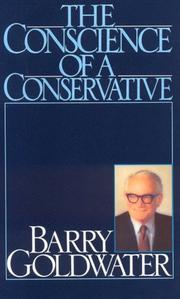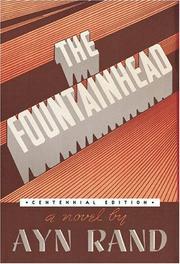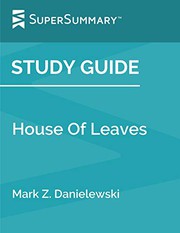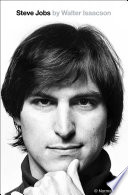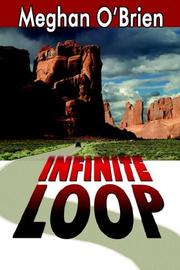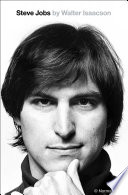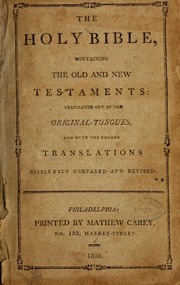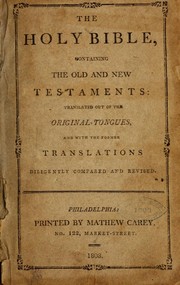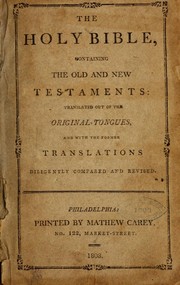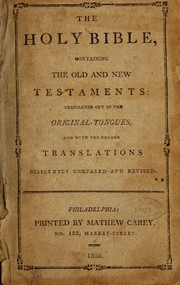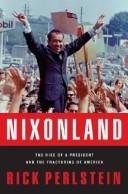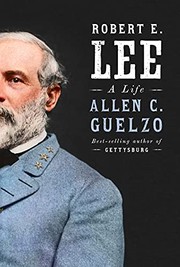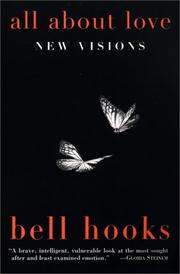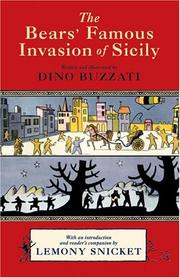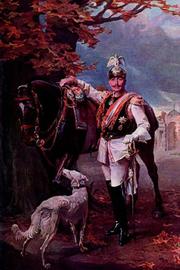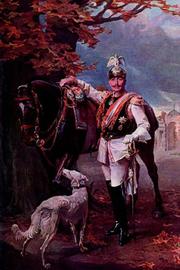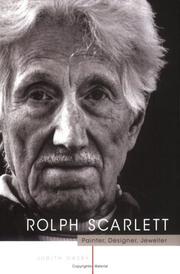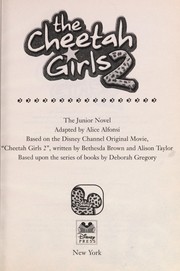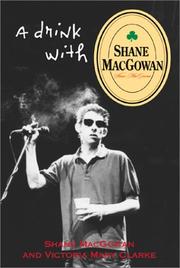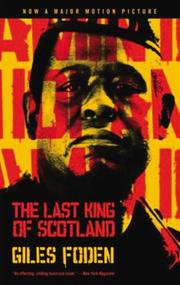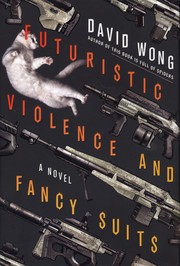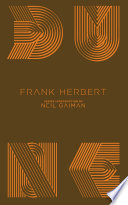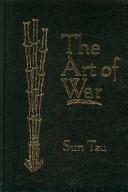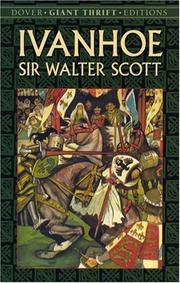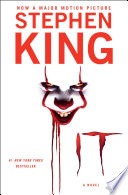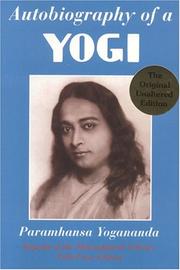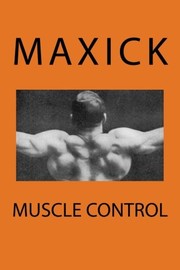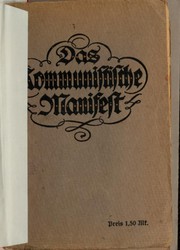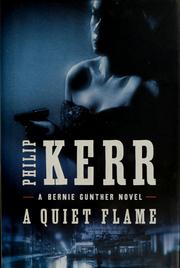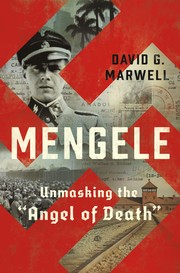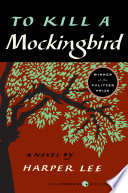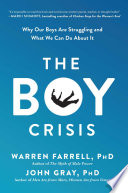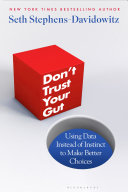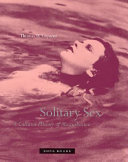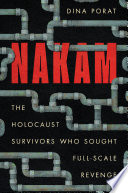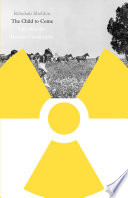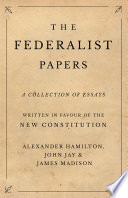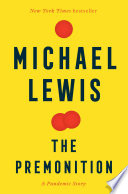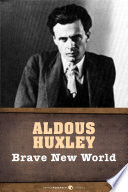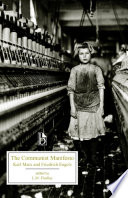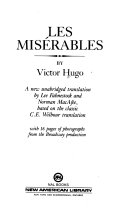Podcast: Behind the Bastards
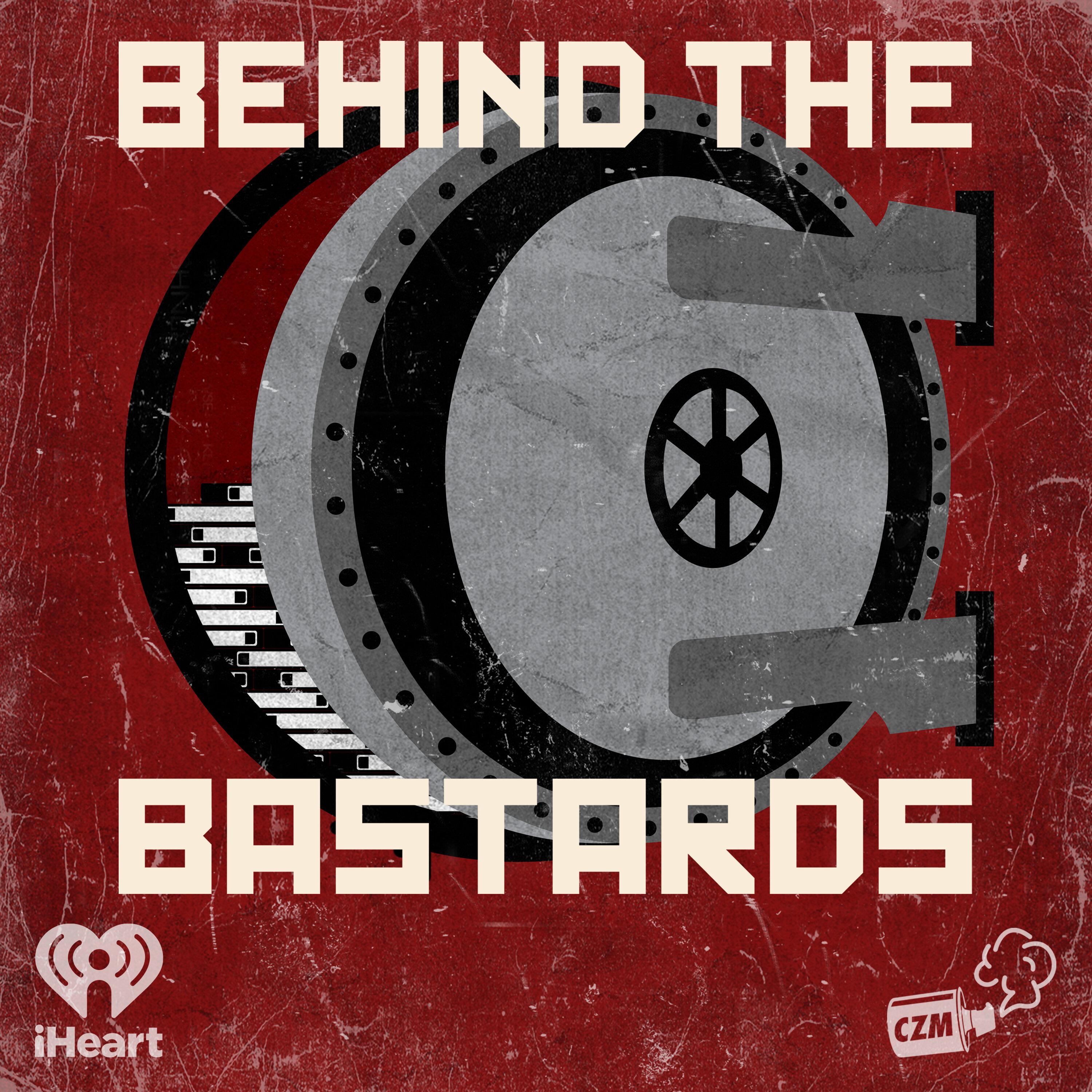
There’s a reason the History Channel has produced hundreds of documentaries about Hitler but only a few about Dwight D. Eisenhower. Bad guys (and gals) are eternally fascinating. Behind the Bastards dives in past the Cliffs Notes of the worst humans in history and exposes the bizarre realities of their lives. Listeners will learn about the young adult novels that helped Hitler form his monstrous ideology, the founder of Blackwater’s insane quest to build his own Air Force, the bizarre lives of the sons and daughters of dictators and Saddam Hussein’s side career as a trashy romance noveli
302 episodes processed, 155 books extracted
Podcast Playlist: View on YouTube
Books Mentioned Most Often
Mein Kampf
Buy Mein Kampf by Adolf Hitler on Amazon
Mentioned 11 times
Like obviously, Stalin's a foreign leader, but I've been reading about Stalin my whole life. Hitler's a foreign leader—I've read more books about Hitler than anybody who's not a Hitler scholar—but like Jair Bolsonaro?
Robert, the podcast host, discusses his extensive reading on Hitler as part of his research. Although not explicitly named, the context suggests he is likely referring to 'Mein Kampf' by Adolf Hitler.
His opponents took turns attacking him, one targeting Jean for boasting that he had read Hitler's book seven times, although he said he was too busy to read any other books.
During a political rally, Eugene Talmadge was criticized by his opponents for claiming he had read Adolf Hitler's *Mein Kampf* seven times, despite saying he was too busy to read other books.
I'm one of the very few people who have read Mein Kampf because that book is not readable seven times.
The host shares their opinion on Adolf Hitler's book, *Mein Kampf*, noting that it is not the kind of book one would want to read multiple times.
My favorite Mein Kampf joke is in the movie Churchill: The Hollywood Years when Winston Churchill, played by Christian Slater, sees a copy of Mein Kampf by his bed and goes, 'What's this, a gay prison novel?'
Garrison shares a humorous reference from the movie *Churchill: The Hollywood Years* involving the infamous book *Mein Kampf* by Adolf Hitler, highlighting its presence in a joke.
He embraced this 'minor dictator' refrain, and to conclude from Anderson, 'Jean's early admiration for Hitler, the fact that he had read Hitler's book seven times, and his tendency to surround himself with huge military staffs and nonchalantly call for martial law gave an eerie backing to his words.'
The podcast host discusses Eugene Talmadge's repeated readings of *Mein Kampf* by Adolf Hitler, highlighting how the book influenced his authoritarian persona.
I'm writing a book in German about—nope, okay, anyway, here's some ads.
The host humorously suggests they are writing a book in German, alluding to "Mein Kampf," before quickly segueing into ads.
Garrison, it's hard not to make a Mein Kampf joke when someone says the word struggle; you know that's my struggle.
The host humorously remarks on the difficulty of avoiding a reference to "Mein Kampf" whenever 'struggle' is mentioned, indicating a running joke about the book.
This is the guy he co-wrote Mein Kampf with; like Hess and Hitler are like tight before his...His is like his ghostwriter?
Robert explains that Rudolf Hess co-wrote 'Mein Kampf' with Adolf Hitler, highlighting the relationship between Hess and Hitler. The book is mentioned as a collaboration between the two.
And here's how he wrote about that moment in Mein Kampf. This takes place, I think, in Austria \u2013 no, sorry, in Vienna.
The mention of 'Mein Kampf' serves to highlight a passage from the book where Hitler describes a specific moment in Vienna, illustrating a narrative he uses in the text.
By 1930, she finally read Mein Kampf for the very first time, which introduced Maximan to Hitler's theories about the Aryan race. His ideas about the superior race, consistently undermined by the evil Jews, jelled remarkably well with Maximan's own beliefs about the ancient Greeks and the Jews.
In the podcast, it's mentioned that Maximan, the subject being discussed, read 'Mein Kampf' for the first time in 1930. This book, written by Adolf Hitler, introduced her to his theories about the Aryan race, which aligned closely with her existing beliefs about race and the Jewish people.
In fact, after a bad night's gambling, he would calm himself down by reading Mein Kampf.
The podcast discusses Lord Lucan's habit of reading 'Mein Kampf' by Adolf Hitler to relax after a bad night of gambling, showcasing Lucan's unsettling interest in Nazi ideology and extremism.
After the Revolution
Buy After the Revolution by Robert Evans on Amazon
Mentioned 7 times
I have a novel; it's called After the Revolution; just type that and Robert Evans into Google, you'll find places to buy it. It's from AK Press; you can also just buy it from them anyway.
The host talks about his novel 'After the Revolution', suggesting listeners search for it online using his name, Robert Evans, or purchase it directly from the publisher, AK Press.
Anyway, I have a novel! It's called After the Revolution!
Robert Evans mentions his novel titled 'After the Revolution' during the podcast.
I have written a novel; it's called After the Revolution, and you can find it on the internet at ATRbook.com or any place that lets you buy books!
Robert Evans, one of the podcast hosts, is mentioning his own novel, 'After the Revolution,' which is available online and at various book retailers.
Yeah, I also have a book; it's called 'After the Revolution.'
In the podcast, the host, Robert Evans, talks about his book titled 'After the Revolution.'
You can find my novel, 'After the Revolution,' wherever books are sold; just type 'After the Revolution' into any book thing or again scream it from the top of your lungs while waving some sort of carved war club at the guy who runs Barnes & Noble, you know, or Applebee's.
In this segment, the podcast host humorously promotes his novel 'After the Revolution,' encouraging listeners to search for it in stores or even shout its name to get attention.
interesting I made for my book A Brief History of Vice I recreated these pipes as best I could
The host, Robert Evans, mentions his own book and describes an activity he undertook for it.
also by Robert's book After The Revolution
The co-host plugs the host's book.
American Sphinx
Buy American Sphinx by Joseph J. Ellis on Amazon
Mentioned 7 times
So the ideological incoherence between some of the words and most of the actions of this prophet of liberty is really well described in Ellis's book, American Sphinx, which is kind of written to explain this part of Jefferson.
The book *American Sphinx: The Character of Thomas Jefferson* by Joseph J. Ellis is mentioned in the context of discussing the ideological inconsistencies between Jefferson's words and actions, especially in relation to slavery. It's used to shed light on the contradictions in Jefferson's character.
In American Sphinx, Ellis bo—chicken season, yeah!
The hosts mention the book 'American Sphinx: The Character of Thomas Jefferson' by Joseph J. Ellis while discussing Thomas Jefferson.
I'll quote first a passage from the original edition of American Sphinx published in 1996.
Robert Evans quotes from Joseph J. Ellis's book *American Sphinx: The Character of Thomas Jefferson*, originally published in 1996, during a discussion about historical views on Thomas Jefferson's relationship with Sally Hemings.
One of those things— I don’t entirely disagree with this; in American Sphinx, Ellis calls it revolutionary realism and compares Jefferson's thinking to Lenin and Mao.
In the podcast, the host discusses how the book *American Sphinx* by Joseph J. Ellis describes Thomas Jefferson's ideological approach as 'revolutionary realism,' drawing parallels between Jefferson and historical figures like Lenin and Mao.
In 'American Sphinx,' Ellis describes Jefferson as turning into kind of a fundamentalist on this point.
Robert Evans, the podcast host, discusses how Joseph Ellis in his book 'American Sphinx' portrays Thomas Jefferson as becoming quite rigid in his views on certain matters.
I'm going to quote from 'American Sphinx' here: In Jefferson's account, a dedicated group of loyal Bostonians risked arrest and persecution to destroy a cargo of contraband.
Robert Evans, the host of the podcast, quotes from 'American Sphinx' by Joseph Ellis. In this book, Ellis discusses Thomas Jefferson's perspective on the Boston Tea Party, highlighting the bravery of Bostonians who risked arrest to destroy contraband.
Now the whole point of that book by Ellis, 'American Sphinx,' the reason he calls it 'American Sphinx' is that Jefferson is really hard to pin down about this and other stuff.
The host discusses 'American Sphinx' by Joseph Ellis, highlighting its focus on Thomas Jefferson's complex and elusive character.
Notes on the state of Virginia
Buy Notes on the state of Virginia by Thomas Jefferson, Thomas Jefferson, Logan, James on Amazon
Mentioned 5 times
So back during his years in France, when he had written Notes on the State of Virginia, Jefferson had written at length his belief that black people were not mentally capable of being free.
The host discusses 'Notes on the State of Virginia' by Thomas Jefferson, highlighting how it reveals Jefferson's racist beliefs about the mental capabilities of Black people.
But a few years earlier, right after he'd finished Notes on the State of Virginia, he sold one of the women he owned to a white man with the understanding that she would be freed by him and they would live as husband and wife.
The mention of 'Notes on the State of Virginia' emphasizes Thomas Jefferson's contradictions. Despite expressing certain ideals in the book, Jefferson's actions, such as selling an enslaved woman with conditions for her freedom, starkly contrasted with what he wrote.
And Jefferson, in Notes on the State of Virginia, which is again him trying to defend the United States to France, writes about how these are one of the worst parts of this really cruel, hideous system.
The host discusses 'Notes on the State of Virginia' to illustrate Jefferson's efforts to justify the United States to France, while acknowledging the harsh realities of slavery.
No, at all. Yeah. Malone goes on to quote another line from Notes on the State of Virginia, which he describes as perhaps the most erudite summary of the evil of slavery: And can the liberties of a nation be thought secure when we have removed their only firm basis, a conviction in the minds of the people that these liberties are of the gift of God, that they are not to be violated, but with his wrath?
The podcast discusses a line from Thomas Jefferson's book, *Notes on the State of Virginia*, where he delves into the notion of slavery and its threatened impact on the liberties of a nation. Jefferson's words are analyzed as being a profound articulation of the moral complexities surrounding the institution of slavery.
Jefferson headed out in a place called Poles Forest and did what he was good at, he wrote; the work he did on the run would later make up his only published book, Notes on the State of Virginia. And if you are a poli-sci student, you just shuddered a little bit; you had to read this son of a [__] in college.
The host refers to Thomas Jefferson's 'Notes on the State of Virginia', pointing out that it is the only book he published. This context is used to illustrate Jefferson's writing prowess during his time after resigning as governor.
The way of the iceman
Buy The way of the iceman by Wim Hof on Amazon
Mentioned 5 times
His book, The Way of the Iceman, gives us very little detail on the long gap between Olea's suicide and his rise to prominence.
The podcast host discusses the book 'The Way of the Iceman' by Wim Hof, noting that it lacks details about a significant period in Hof's life, specifically the time between Olea's suicide and his emergence as a prominent figure.
In his book The Way of the Iceman, he claims he came out as something of a surprise, quote, "after his mother had given birth to his twin brother, Andre."
During the podcast, Robert refers to Wim Hof's book 'The Way of the Iceman' while delving into Hof's intriguing background, particularly a surprising claim about the circumstances of his birth.
The Way of the Iceman came out in 2017, but you can find articles from the 2020s where he tells the canal story instead. I do find that book to be the most interesting version of his backstory in part because of how badly written and off-putting it is.
Robert discusses Wim Hof's book, 'The Way of the Iceman,' mentioning that despite it being poorly written, he finds it the most interesting version of Hof's backstory.
This includes in 2017 in The Way of the Iceman. He also sometimes says that she was merely depressed; obviously, both of those things can go together.
In this segment, Robert refers to Wim Hof's book 'The Way of the Iceman' while discussing the complexities of Hof's wife's diagnosis, suggesting that both schizophrenia and depression can co-occur.
That's just my judgment on the matter, but here's how he relates the same story in his 2017 book, The Way of the Iceman. One day, when Hoff was alone in the mountains, OA jumped from the eighth floor of her parents' house in P. Lona, OA was dead.
Robert discusses Wim Hof's book, 'The Way of the Iceman,' highlighting how Hof recounts a story that contrasts with an earlier version published in Rolling Stone, which mentions the tragic suicide of his wife.
Blood Meridian
Buy Blood Meridian by Cormac McCarthy on Amazon
Mentioned 4 times
I'm going to go do a Blood Meridian after this. Use my own urine to make gunpowder.
Robert Evans humorously mentions that he plans to 'do a Blood Meridian,' implying an outlandish adventure similar to a scene from the book by Cormac McCarthy, in which gunpowder is made from urine.
It's kind of—I think that Blood Meridian is challenging in some ways that aren't different, because like so much of reading Blood Meridian is like, 'What the f*** did he mean by that?
One of the hosts discusses 'Blood Meridian', describing it as a challenging read and reflecting on its complexities.
Blood Meridian is a lot closer to an abnormal novel than Finnegan's Wake is, though, but like, they're both interesting.
In this segment, one of the hosts discusses the book 'Blood Meridian,' highlighting its uniqueness as an abnormal novel and comparing it to 'Finnegan's Wake,' while acknowledging that both works are intriguing.
And what she means by this is that books, from Blood Meridian to Hop On Pop, are a dialogue between writer and reader.
The host refers to the book 'Blood Meridian' in a discussion about how all books establish a dialogue between the writer and reader.
Raw Dog
Buy Raw Dog by Jamie Loftus on Amazon
Mentioned 4 times
Uh, you can—what else can you do? You can buy my book, Raw Dog, which is about hot dogs!
Jamie Loftus mentions her book 'Raw Dog,' describing it as a book about hot dogs, and encourages listeners to purchase it.
You are also the author of the bestselling book Raw Dog. You are a co-host of The Beal Cast and you are the future host...
During the podcast, the hosts discuss 'Raw Dog', a bestselling book authored by their guest, Jamie Loftus, highlighting it as one of her accomplishments.
Okay, I wanna plug two books that are available for pre-order right now. The first of which is Jamie Loftus's book about hot dogs, called Raw Dog, and it's available for pre-order. Go to her social media for all that info.
During the episode, host Robert Evans promotes Jamie Loftus's book titled "Raw Dog," discussing its availability for pre-order and encouraging listeners to check her social media for more information.
uh uh raw dog yeah Thanks Sophie yeah Pre-order raw dog If you listen to the Hot Dog episode of bastards and didn't like it you did like it Now buy the book
One of the hosts (Jamie Loftus) promotes her upcoming book, 'Raw Dog', linking it to a previous episode about hot dogs.
History of the Decline and Fall of the Roman Empire Complete and Unabridged
Mentioned 3 times
I mean [ __ ] man the the first and most his like one of the first influential works of his modern scholarship is the decline and fall of the Roman Empire It's a whole book about why a society fell apart
The host mentions this classic historical work as an example of someone who wrote about why societies fall apart, contrasting it with a reviewer's claim about Yudkowsky.
I think we should replace some of the history books with Marjorie Taylor Greene's book, but I think specifically we should go for like Edward Gibbon's Rise and Fall of—yeah!
The podcast host jokes about replacing classic history books with Marjorie Taylor Greene's book, specifically mentioning Edward Gibbon's 'The History of the Decline and Fall of the Roman Empire' as an example to replace.
Decline and Fall of the Roman Empire—just throw Marjorie Taylor Greene's book in for like volume three of that [__] classic scholarly work! Yeah, see who notices!
The host humorously suggests replacing a volume of Edward Gibbon's 'The History of the Decline and Fall of the Roman Empire' with Marjorie Taylor Greene's book, as a joke on altering classic works.
Where Am I Now?
Buy Where Am I Now? by Mara Wilson on Amazon
Mentioned 3 times
Mara, your memoir, Where Am I Now?
The host talks about Mara Wilson's memoir titled 'Where Am I Now?' during this episode. This mention serves to promote Mara Wilson's work, as she is the guest for the episode.
Mara, you are, I mean, if you are a person listening to this who is roughly my age, Mara was in, I don't know about like 30% of the movies that made up a huge part of your childhood. And you have recently written a memoir, Where Am I Now?
The host acknowledges Mara Wilson's career as an actress and mentions her memoir, 'Where Am I Now?: True Stories of Girlhood and Accidental Fame', highlighting her transition from acting to writing.
Look up Mara's excellent book 'Where Am I Now: True Stories of Girlhood and Accidental Fame.' And most importantly, slash all of the tires in the parking lot.
The host encourages listeners to check out Mara Wilson's book 'Where Am I Now?: True Stories of Girlhood and Accidental Fame,' highlighting her work as an author and audiobook narrator.
Small Fry
Buy Small Fry by Lisa Brennan-Jobs on Amazon
Mentioned 3 times
That's how she describes it in her book, which is wonderfully evocative. That's what you want from your dad.
Robert Evans refers to Lisa Brennan-Jobs's memoir, 'Small Fry', where she captures her experiences and her father's mood in an evocative manner.
What I like about Lisa's book and why I think this is such a useful addition to the Jobs canon is that this is not just somebody who, like, maybe walked past as Steve was being shitty or like heard some stories from some other people; just being like, 'Oh yeah, you know, he could be a dick.'
The host discusses how Lisa Brennan-Jobs's book offers a unique and insightful perspective into Steve Jobs's character, contrasting it with more distant accounts.
One she relates in her book is that like when she's like I think 12 or something, he's driving her around in his brand new Porsche, right?
The mention refers to Lisa Brennan-Jobs' memoir, where she describes an incident involving her father, Steve Jobs. In the story, he refuses Lisa's request while they are driving in his new Porsche.
Cultish
Buy Cultish by Amanda Montell on Amazon
Mentioned 2 times
I have another podcast called Magical Overthinkers and I got a bunch of books. Cultish, The Age of Magical Overthinking.
The guest, Amanda Montell, lists her books. This is the first book mentioned.
Our wonderful guest today, Amanda Montel, author of the book Cultish, which I've cited on this show.
The host introduces the guest, Amanda Montell, and mentions her book 'Cultish', stating it has been cited on the show.
Harry Potter and the Methods of Rationality
Buy Harry Potter and the Methods of Rationality by Eliezer Yudkowsky on Amazon
Mentioned 2 times
um she starts reading around this time when she's in college Harry Potter and the methods of rationality This helps to solidify her feelings of her own centrality as a hero figure
The host mentions Ziz reading this fanfiction in college and how it influenced her self-perception as a hero figure.
Uh, the founding text or at least one of them of rationalism is a 66,000-word Harry Potter fanfic that is just nonsense.
The host discusses the origins of the rationalist movement, highlighting a significant Harry Potter fan fiction titled 'Harry Potter and the Methods of Rationality.' This fan fiction reimagines the world of Harry Potter with a focus on rational thinking as a central theme.
The Sexual Politics of Meat
Buy The Sexual Politics of Meat by Carol J. Adams, Carol Adams, Carol J. Adams on Amazon
Mentioned 2 times
Actually, a lot of what I was thinking throughout this episode had to do with an interview on a recent episode with Carol J. Adams, author of The Sexual Politics of Meat, who was harassed and doxxed for weeks and like an entire summer by Rush Limbaugh back in the day and then went on to be harassed and doxxed by Jordan Peterson's fans just a couple of years ago.
During the episode, the host mentions 'The Sexual Politics of Meat' by Carol J. Adams. The reference comes while discussing the impact of discussions in controversial online spaces, linking historical instances of harassment faced by Adams from figures like Rush Limbaugh and similar modern figures such as Jordan Peterson's followers.
I was recently talking to a feminist vegan named Carol Adams, who's awesome; she wrote this book called The Sexual Politics of Meat. So I'm sure she would love the pig anus discussion we just had.
Carol Adams, a feminist vegan, is mentioned as the author of 'The Sexual Politics of Meat.' The host humorously notes that she would appreciate their conversation about pig anuses.
Berlin Games
Buy Berlin Games by Guy Walters on Amazon
Mentioned 2 times
Uh, yeah, now I learned he was a piece of [__] from the book Berlin Games by Guy Walters.
The host learned about a person's questionable character from the book 'Berlin Games' by Guy Walters.
In his book, Berlin Games, Guy Walters writes: 'Kutin was almost regarded as Christ, and Ballet Lure, who is like his second in the Olympic Committee, as his disciple.'
Robert quotes from the book 'Berlin Games' by Guy Walters, describing the almost religious devotion to the Olympic ideal and their leaders.
Web of deceit
Buy Web of deceit by Mark Curtis on Amazon
Mentioned 2 times
Michael Stewart, the Baron Stewart of Fulham, a British labor party politician and foreign secretary, wrote in yet another secret document and I'm reading from Mark Curtis's Web of Deceit, here: "By any stretch of the English language, there was an indigenous population and the foreign office knew it."
The podcast episode discusses how the British government was aware of the indigenous population on the Chagos Islands. This point is supported by referencing the book 'Web of Deceit' by Mark Curtis, where an excerpt from a secret document written by Michael Stewart is quoted.
In his 2003 book, Web of Deceit, Mark Curtis notes that in making this agreement, quote, "Britain thus ignored UN Resolution 266 XX, which called on the UK to take no action that would dismember the territory of Mauritius and violate its territorial integrity."
Robert references 'Web of Deceit' by Mark Curtis as a source for information about the U.K.'s actions regarding the agreement with the U.S. over the Chagos Islands, highlighting that the book points out Britain's disregard for a UN resolution during this process.
Unsafe at any speed
Buy Unsafe at any speed by Ralph Nader on Amazon
Mentioned 2 times
When Joe was 11, he lost his younger brother to an auto accident, which was not uncommon in those days because cars didn't crumple, and seat belts were but a fever dream in Ralph Nader's eye.
The mention reflects a critique on automobile safety in the past, referencing Ralph Nader's advocacy for car safety improvements, famously highlighted in his book 'Unsafe at Any Speed'.
In 1965, Nader published a book called "Unsafe at Any Speed," which compelled the automotive industry to include seat belts and improve safety features.
Robert Evans discusses 'Unsafe at Any Speed' by Ralph Nader, highlighting the book's role in challenging corporate power and sparking a major shift in automotive safety standards.
Sapling Cage
Buy Sapling Cage by Margaret Killjoy on Amazon
Mentioned 2 times
Um, it's a particularly bad idea in her case because the book that she decided to write wasn't a really good work of fiction like your book, The Sapling Cage, Margaret.
The hosts reference 'The Sapling Cage' as a work of fiction by Margaret Killjoy, highlighting it positively in comparison to another book discussed in the episode. This serves as a humorous nod to the host Margaret's fictional work.
I wrote a YA novel without any bad things—of course there are bad things; it's a novel and bad things have to happen in a story—called 'The Sapling Cage.' It's great, by the way. Robert actually read it; it is my favorite piece of your writing so far.
In this part of the podcast, Margaret Killjoy talks about her young adult novel, 'The Sapling Cage.' She expresses pride in the book, highlighting it as her favorite work so far, and notes that Robert, the co-host, also read and enjoyed it.
Fifty Shades of Grey
Buy Fifty Shades of Grey by E. L. James on Amazon
Mentioned 2 times
It's like the, uh, what was it? 50 Shades of Grey, how it was originally a Twilight fanfic?
The host mentions 'Fifty Shades of Grey', noting its origin as a 'Twilight' fanfiction, to illustrate how derivative works can achieve their own significance. This is used to draw a parallel to the AI subculture's adoption of a Harry Potter fanfic as a foundational element for their philosophical movement.
and it's basically surprise surprise 50 Shades of Gray and so the Google Engineers identified five categories of men that were often the feature
Jordan Peterson mentions "50 Shades of Gray" as an example of a common female erotic fantasy, linking it to the study in "A Billion Wicked Thoughts".
The Teachings of Don Juan
Buy The Teachings of Don Juan by Carlos Castaneda on Amazon
Mentioned 2 times
Now, a lot of people are probably familiar with the Don Juan books, right? So Carlos Castaneda, these are like 1960s; they come out chronicle of mystical self-exploration that are kind of one of the inciting incidents of the New Age movement.
The 'Don Juan books' are mentioned as significant works by Carlos Castaneda, influential in the New Age movement. The mentioned title is clarified to be 'The Teachings of Don Juan', representing a mystical journey of self-exploration from the 1960s.
Castaneda was this Peruvian writer who comes to the United States and gets a doctorate in anthropology from the University of California, and he writes three books starting with the teachings of Don Juan, which he claims are a faithful representation of his apprenticeship of a traditional shaman of the Yaqui people in northern Mexico.
The host mentions 'The Teachings of Don Juan' as the first book by Carlos Castaneda, describing it as part of his claimed apprenticeship experiences with a Yaqui shaman.
None dare call it conspiracy
Buy None dare call it conspiracy by Gary Allen on Amazon
Mentioned 2 times
In 1971, he writes an introduction to Gary Allen and Larry Abraham's None Dare Call It Conspiracy, the book which was hugely influential—this was like the center of Alex Jones's ideology today.
John Schmitz wrote an introduction to 'None Dare Call It Conspiracy' by Gary Allen and Larry Abraham. The hosts explain that this book played a significant role in shaping Alex Jones's current ideology.
He made much use of his connection to 'None Dare Call It Conspiracy,' which by election season had blown up, selling 5 million copies.
The podcast host discusses John Schmitz's campaign strategy, emphasizing his connection to the book 'None Dare Call It Conspiracy,' which became very popular, selling 5 million copies.
Suburban Warriors
Buy Suburban Warriors by Lisa McGirr on Amazon
Mentioned 2 times
And yeah, I want to quote here from the book Suburban Warriors by Lisa McGirr: "By 1962, defense had become the nation's largest business, and from 1946 to 1965, 62% of the federal budget went to defense.
The hosts quote from 'Suburban Warriors' by Lisa McGirr, referencing the scale of US defense spending between 1946 and 1965 and its effects on Southern California.
I'm going to quote from Suburban Warriors, again by McGear Leonard Reed, who in 1945 would organize the foundation for Economic Education, an institution devoted to promulgating the message of free market private property and the moral principles which underlie these concepts.
The hosts quote from 'Suburban Warriors' by Lisa McGirr to discuss Leonard Reed's role in promoting free market principles and private property during the mid-20th century.
The radium girls
Buy The radium girls by Kate Moore on Amazon
Mentioned 2 times
It is laid out in gripping detail by author Kate Moore in her book, The Radium Girls. I was like, why do I know that?
In this segment, Robert Evans discusses the book 'The Radium Girls' by Kate Moore, highlighting it as a compelling source that provides detailed insights, which seems to resonate with the listeners.
I’m going to quote from The Radium Girls here, from them and from the specialist medical literature he had studied.
The podcast host mentions 'The Radium Girls' and indicates that they will quote from the book, highlighting its use as a source of information.
Escape from Incel Island
Buy Escape from Incel Island by Margaret Killjoy on Amazon
Mentioned 2 times
I have a book coming out yeah called escape from in cell Island which asks the very important question of what if all of the men who felt like they were owed a Woman by the government got tricked into moving to an island where they were stuck
The guest, Margaret Killjoy, announces and describes her upcoming book.
I have a book called escape from Insel Island that does what it says on the title on the cover and it is coming out from strangers in the Tangled Wilderness on February 1st and you can pre-order it at Tangled wilderness.org and get a a free poster of the cover it's a really cool cover
Margaret Killjoy announces and promotes her upcoming book, "Escape from Insel Island", mentioning its title, release date, and publisher.
The Essential Stalin
Buy The Essential Stalin by Joseph Stalin on Amazon
Mentioned 1 time
Sar did start reading a lot of Stalin around this time and that's because he in his circle there's a lot of Stalin going around particularly there's a a history of the Communist Party in Russia that Stalin wrote, right? And this is it's a Stalin book, right?
Pol Pot and his circle read this specific history written by Stalin, noting its focus on internal enemies.
The Age of Magical Overthinking
Buy The Age of Magical Overthinking by Amanda Montell on Amazon
Mentioned 1 time
I have another podcast called Magical Overthinkers and I got a bunch of books. Cultish, The Age of Magical Overthinking.
The guest, Amanda Montell, lists her books. This is the second book mentioned.
Hugenberg's economic program
Buy Hugenberg's economic program by Alfred Hugenberg on Amazon
Mentioned 1 time
Uh so his first while he's in co college effectively he gets you know he he does his like dissertation right which is his first booklength publication like these are effectively books and his first dissertation is titled internal colonization in northwest Germany which he fetishes at the university of Strasburg in 1891.
The host describes Hugenberg's first publication, a dissertation, and gives its title.
Alfred Hugenberg
Buy Alfred Hugenberg by John A. Leopold on Amazon
Mentioned 1 time
Uh in his book on Hugenberg John Leopold writes quote the young doctoral candidate analyzed in detail the role of the state in fostering economic growth.
The host quotes from a book by biographer John Leopold about Hugenberg.
The Mom Test
Buy The Mom Test by Rob Fitzpatrick on Amazon
Mentioned 1 time
As Fpatrick writes, Jeff Bradstreet abandoned his career as a family doctor to become a radio talk show host.
The host references a book by Fitzpatrick to describe Jeff Bradstreet's career change after his son's autism diagnosis.
Defeating Autism
Buy Defeating Autism by Michael Fitzpatrick on Amazon
Mentioned 1 time
Feeding into this complex churn is the fact that as the term autism grows to Encompass more people it loses what author and Doctor Michael Fitzpatrick describes as a sense of coherence Michael wrote a great book about the biomedical movement titled defeating autism a damaging delusion and in it he writes
The host introduces the author Michael Fitzpatrick and his book, then quotes from it to support a point about the changing definition of autism.
Toxic Childhood
Buy Toxic Childhood by Sue Palmer on Amazon
Mentioned 1 time
So these experts are not mostly doctors though and in fact among the most influential of them is former school teacher Sue Palmer author of the book toxic childhood published in 2006
The host introduces Sue Palmer as an influential expert in the movement and mentions her book and its publication year.
My Life
Buy My Life by Bill Clinton on Amazon
Mentioned 1 time
um in his 2005 book my life Clinton described Tony Al as Roy Orbison on speed
The host mentions Bill Clinton's book 'My Life' from 2005 and a description of Tony Alamo found within it.
The Secret
Buy The Secret by Rhonda Byrne on Amazon
Mentioned 1 time
there's also [ __ ] like a lot of poisonous stuff gets very famous and I'm speaking here about the SEC secret which we have I think discussed adequately
The host lists 'The Secret' as an example of 'poisonous stuff' that became famous through Oprah's book club.
The Color Purple
Buy The Color Purple by Alice Walker on Amazon
Mentioned 1 time
but yeah the color purple is based on a novel by Alice Walker and The Character she was portraying like I like I get it's not something I think he should have said but I get where he's coming from
The host mentions that the movie 'The Color Purple', in which Oprah acted, is based on a novel by Alice Walker.
The Dispossessed
Buy The Dispossessed by Ursula K. Le Guin on Amazon
Mentioned 1 time
What are some of the most impactful books that you've read that you think listeners should read The Dispossessed by Ursula K. Le Guin If you also haven't read Ones Who Walk Away from Omelas which is a short story Read that
The host, Robert, recommends 'The Dispossessed' by Ursula K. Le Guin as an impactful read for listeners.
Cultish
Buy Cultish by Amanda Montell on Amazon
Mentioned 1 time
And oh my God Oh we both read this book Who's the H I'm forgetting the author's name Cultish by I want to say Amanda Montel Amanda Montel Cultish was quite good
Robert and Sophie discuss having read the book 'Cultish' by Amanda Montel, with Robert expressing his appreciation for the book.
The Water Knife
Buy The Water Knife by Paolo Bacigalupi, Almarie Guerra on Amazon
Mentioned 1 time
And you know why are there so many questions People here's here's one I haven't brought up in terms of books Read The Water Knife by Pooja Bhatia I'm I'm saying his name wrong I know But The Water Knife is just excellent Excellent book
The host, Robert, recommends the book 'The Water Knife', though he initially mispronounces the author's name and corrects himself by implying he got it wrong. The actual author is Paolo Bacigalupi.
Ramblin' Man
Buy Ramblin' Man by Ed Cray on Amazon
Mentioned 1 time
In Ramblin' Man, Ed Craig dives into more detail about a left-wing anti-war song he wrote called 'Why Do You Stand There in the Rain.', based on the title of a New York Post article.
The podcast host references "Ramblin' Man" by Ed Cray (incorrectly named Ed Craig) as a source that provides more insight into a song Woody Guthrie wrote.
Bound for Glory
Buy Bound for Glory by Woody Guthrie on Amazon
Mentioned 1 time
He had composed an autobiographical novel at this point entitled 'Bound for Glory,' which had been set for adaptation into a major Hollywood production, but that deal fell through, as did many others, as unions adopted anti-communist stances during this paranoid era.
The podcast host is discussing Woody Guthrie's career troubles, mentioning that his autobiographical novel, "Bound for Glory", was initially intended for a major film adaptation, but that project ultimately fell through.
Needful Things
Buy Needful Things by Stephen King on Amazon
Mentioned 1 time
There's a photo of Regis Philbin, and I can only describe the look on his face— he looks like he is smiling like the devil—like he, like—like you would cast him in Needful Things, he is selling you a cursed victrola!
In this mention, Regis Philbin's facial expression is compared to the kind of sinister characters found in Stephen King's 'Needful Things,' specifically when a character might be selling a cursed item. It's a pop culture reference to enhance the imagery of his expression.
Bad Boy
Buy Bad Boy by Ronin Ro on Amazon
Mentioned 1 time
Ronin's book 'Bad Boy,' which covers Diddy’s influence on the hip hop industry, paints a picture of a young man who was beyond everything else an opportunist!
The book 'Bad Boy' by Ronin is discussed as it examines Diddy's impact on the hip hop scene and characterizes him as an opportunist.
It Was All a Dream
Buy It Was All a Dream by Justin Tinsley on Amazon
Mentioned 1 time
In the book 'It Was All a Dream,' culture journalist Justin Tinsley writes this of sophomore Sean Combs' involvement in this protest campaign: 'For Combs, the student protest in the spring of '89 presented an opportunity to unite the student body and put some money in his pockets at the same time.'
It Was All a Dream, written by Justin Tinsley, captures a moment of opportunism by Sean Combs during a student protest in 1989, highlighting how Combs used the event to foster unity and generate personal profit.
The Lord of the Rings
Buy The Lord of the Rings by J.R.R. Tolkien on Amazon
Mentioned 1 time
There you go; you could journal the Lord of the Rings into ChatGPT and you too could be a novelist.
The mention humorously suggests that by putting 'The Lord of the Rings' into an AI tool, anyone can become a novelist, highlighting the classic nature of Tolkien's work.
Works (Carrie / Night Shift / 'Salem's Lot / Shining)
Buy Works (Carrie / Night Shift / 'Salem's Lot / Shining) by Stephen King on Amazon
Mentioned 1 time
Speaking of people who aren't pedophiles in a way that I can prove today, we're going to be reading Marjorie Taylor Greene's book. Oh my God, there's an entire section about pedophiles in this book!
The hosts are discussing their decision to read Marjorie Taylor Greene's book during this podcast episode. They highlight an intriguing part of the book that involves a section about pedophiles.
Mtg
Buy Mtg by Marjorie Taylor Greene on Amazon
Mentioned 1 time
Garrison and I walked down a little bit to where Marjorie Taylor Greene was doing a book signing for her new book. Yes, Jamie, it's called MTG.
The host is sharing an experience of going to a book signing event for Marjorie Taylor Greene's new book, titled MTG.
Goldsmith's The vicar of Wakefield
Buy Goldsmith's The vicar of Wakefield by Oliver Goldsmith on Amazon
Mentioned 1 time
And that same year, he went further, having read Forster's ghost story, Dr. Watt, in which a man dies after a gay sexual encounter.
The hosts discuss Lawrence's sexuality and refer to the book 'Dr. Watt', a ghost story by E.M. Forster, which depicts a man's demise following a homosexual encounter. This reference is used to shed light on Lawrence's personal views on sexuality.
Study Guide
Buy Study Guide by Supersummary on Amazon
Mentioned 1 time
And Ber was curious; they should go read Robert's book After The Revolution because that is what that is talking about—a book full of morally compromised people who regret their actions in war!
The hosts discuss a book authored by Robert, titled 'After The Revolution', and suggest it as related to their conversation on morally conflicted individuals.
Twilight
Buy Twilight by Stephenie Meyer on Amazon
Mentioned 1 time
Now, I need to explain to you something called a book series called the Twilight series!
The host humorously suggests explaining the 'Twilight series' to Lawrence of Arabia in a hypothetical time travel scenario, highlighting a stark contrast between his historical context and a popular modern book series.
Sapling Cage
Buy Sapling Cage by Margaret Killjoy on Amazon
Mentioned 1 time
Yeah, purchase Margaret's new book, you know, 'The Sapling Cage,' it's excellent. If you're listening to this several weeks ahead, you can go see Robert and I talk in Portland.
The host encourages listeners to buy Margaret's latest book, 'The Sapling Cage', highlighting it as an excellent read.
Guerrilla leader
Buy Guerrilla leader by James J. Schneider on Amazon
Mentioned 1 time
Uh, James Schneider writes in his book Gorilla Leader, he discovered then the reality in modern war that the civilian population will always suffer when a European power pursues its national interests without regard to the culture and political aspirations of the native populace.
In the podcast, the host talks about Lawrence's realization of the impact of war on civilians, referencing the book Guerrilla Leader by James Schneider. The host discusses how Schneider's writing captures the harsh realities faced by the civilian population during modern warfare.
The Art of War
Buy The Art of War by Sun Tzu on Amazon
Mentioned 1 time
Whether Lawrence was aware of this or not, others had presented a similar ideal some 2,200 years earlier, Sun Tzu. The most famous—yeah, exactly.
The hosts discuss Sun Tzu, the renowned ancient military strategist, and implicitly reference his iconic book, "The Art of War."
Setting the Desert on Fire
Buy Setting the Desert on Fire by James Barr on Amazon
Mentioned 1 time
I want to quote now from a book called Setting the Desert on Fire by James Barr. At the Times Valette, Cho believed that the Sultan's power as Khalif gave him a disturbing and disruptive political influence worldwide.
The host mentions 'Setting the Desert on Fire' by James Barr, indicating it as a source they're quoting regarding T.E. Lawrence and the political influence of the Sultan's power as Khalif.
The young T.E. Lawrence
Buy The young T.E. Lawrence by Anthony Sattin on Amazon
Mentioned 1 time
Um, in the wonderful book The Young T.E. Lawrence, biographer Anthony Satin writes that Lawrence and his four brothers never, quote, 'had an unhappy or even an unsettled life.'
The host refers to the book 'The Young T.E. Lawrence' by biographer Anthony Sattin, mentioning that it describes the stable and happy childhood of Lawrence and his siblings.
Thank You for Smoking
Buy Thank You for Smoking by Christopher Buckley on Amazon
Mentioned 1 time
Around 2007, he and Elon Musk, along with David Sachs, funded a movie called 'Thank You for Smoking,' which I just watched the day Biden dropped out of the election, and it still holds up. It's a good movie with the actor who played Two-Face in Christopher Nolan's Batman films; he did a fantastic job. It's based on a book by William F. Buckley's son, which is incredibly libertarian and very early in that ideology.
Robert Evans references 'Thank You for Smoking' and highlights that it is based on a book by Christopher Buckley, noted for its libertarian themes, as part of discussing Peter Thiel's ideological influences.
The Contrarian
Buy The Contrarian by Max Chafkin on Amazon
Mentioned 1 time
Now, Teal's biographer, Max Chafkin, author of 'The Contrarian,' which is a book that will be a sizable source for this, although I do have some disagreement—I think Chafkin is a very good writer, a good biographer—there are a couple of areas where I disagree with him that we'll talk about here.
Max Chafkin's book 'The Contrarian' is acknowledged by the host as a significant source for the episode on Peter Thiel, despite some disagreements with the author's perspectives.
A thousand days
Buy A thousand days by Arthur M. Schlesinger, Jr. on Amazon
Mentioned 1 time
Over a long career as a political writer, he laid down the definitive first biography of JFK's White House, he convinced RFK to run for president, he then wrote a definitive book about RFK after he was assassinated, he invented the term the imperial presidency!
Arthur Schlesinger Jr.'s achievements are being highlighted, including his authorship of 'A Thousand Days: John F. Kennedy in the White House,' which is recognized as the first biography of JFK's time in the White House.
Robert Kennedy and his times
Buy Robert Kennedy and his times by Arthur M. Schlesinger, Jr. on Amazon
Mentioned 1 time
Over a long career as a political writer, he laid down the definitive first biography of JFK's White House, he convinced RFK to run for president, he then wrote a definitive book about RFK after he was assassinated, he invented the term the imperial presidency!
Arthur Schlesinger Jr. was a renowned political writer who wrote the definitive first biography of JFK's presidency. He also encouraged RFK to run for president and wrote an important book about RFK after his assassination, illustrating his significant impact on historical literature.
Bible
Mentioned 1 time
It was all show, flash bulbs sparked the air, people cheered, police swarmed, and the show opened by reading excerpts from Brown America, the book written by Rosenwald.
At a public hearing, excerpts from the book 'Brown America' by Julius Rosenwald were read aloud as evidence. The book was being used to suggest guilt by association for educators accused of promoting communist and racial equality ideals, reflecting the author's known philanthropic activities.
The Call of the Wild
Buy The Call of the Wild by Jack London on Amazon
Mentioned 1 time
They read from another book on race titled Calling America and a disgruntled professor testified that five black men from the Tuskegee Institute toured Statesboro College and ate in the cafeteria while no white people were on campus.
The podcast hosts discuss an incident involving the book 'Calling America' during a hearing. It was used to accuse an educator of allowing black men on a college campus without white witnesses, reflecting the racial tensions and political attacks Dr. Pitman faced for his perceived support of racial integration.
A State-by-State History of Race and Racism in the United States [2 volumes]
Mentioned 1 time
I'm going to quote from the book Race and Racism in the United States: 'On his deathbed, he told his Baptist preacher that the black race was created inferior by God.'
The hosts quote from 'Race and Racism in the United States' to illustrate the extreme racist beliefs held by Eugene Talmadge on his deathbed, showcasing the profound impact of such ideologies both historically and in modern contexts.
The Great Gatsby
Buy The Great Gatsby by F. Scott Fitzgerald on Amazon
Mentioned 1 time
I've become one of those old men who's angry at the kids for not having read the same things I read when I was in high school. I'm sorry, like The Great Gatsby.
The host reflects on feeling like an older person who's upset that younger generations are not engaging with classic books like 'The Great Gatsby', which he feels are important to read.
Camp des saints
Buy Camp des saints by Jean Raspail on Amazon
Mentioned 1 time
He also praises the novel, "The Camp of the Saints," a racist narrative about migrants from India invading Europe and destroying civilization, which happens to be a favorite of Steve Bannon.
The podcast host discusses 'The Camp of the Saints' as a racist novel favored by Steve Bannon, highlighting its relevance to Curtis Yarvin's ideology.
Tlön, Uqbar, Orbis Tertius
Buy Tlön, Uqbar, Orbis Tertius by Jorge Luis Borges on Amazon
Mentioned 1 time
The company name derives from a fictional short story written by Borges in 1940, describing a secret society attempting to construct a brand new world via the establishment of an encyclopedia.
The mention is about the origin of a company's name, inspired by a Borges short story about a secret society's ambitious attempt to create a new reality by reconstructing history through writing. The story in question is likely 'Tlön, Uqbar, Orbis Tertius' by Jorge Luis Borges, even though it is not directly named.
A Gentle Introduction to Unqualified Reservations
Buy A Gentle Introduction to Unqualified Reservations by Mencius Moldbug on Amazon
Mentioned 1 time
He begins disseminating his new thoughts on politics through his blog, in a series of essays called 'Unqualified Reservations,' aimed at garnering support for reorganizing society away from democracy and towards his vision of enlightened rule.
The podcast host describes Curtis Yarvin's blog, titled 'Unqualified Reservations,' where he publishes essays arguing for a change from democracy to a different type of government.
Thomas Kinkade's Cape Light
Buy Thomas Kinkade's Cape Light by Katherine Spencer on Amazon
Mentioned 1 time
They believed in Thomas Kinkade, not just in the man or the company, but in the ethos supposedly represented by his art, one in which, to quote Kinkade's introduction to 'Cape Light,' people have the time to savor life, simple pleasures, and lead deep, satisfying lives.
The mention discusses 'Cape Light,' a book by Thomas Kinkade, and references its introduction as embodying an ethos of savoring life's simple pleasures.
Dinotopia
Buy Dinotopia by James Gurney on Amazon
Mentioned 1 time
Now you can compare this to his old friend whose Dinotopia books were labors of love; whatever else you might say about them, you could tell it was clearly the work of someone who cares deeply about telling a dinosaur story.
The host discusses the 'Dinotopia' books, noting how they were crafted with passion and care, unlike the books published under Thomas Kinkade's name, which he did not actually write.
In Cold Blood
Buy In Cold Blood by Truman Capote on Amazon
Mentioned 1 time
In Cold Blood came out when, you know like, yeah, it's definitely, it hearkens to that whole like the rose-tinted glass view that I'm beginning to see Gen Xers start also throwing out there like, oh back when we drank out of the water hose and our parents played the sunset and like, yeah that wasn't great.
A podcast host mentions the book 'In Cold Blood' by Truman Capote while discussing how people often look back at the past with a rose-tinted view, contrasting idealized memories with the harsher realities of those times.
Mussolini and Fascism
Buy Mussolini and Fascism by John Patrick Diggins on Amazon
Mentioned 1 time
In his study, Mussolini and Fascism: The View from America, John Patrick Diggins notes that out of 150 articles that mentioned Mussolini in US newspapers from 1925 to 1932, the majority had either a neutral or a bemused positive tone.
A book by John Patrick Diggins is discussed, which examines how Mussolini was portrayed in American media during the late 1920s and early 1930s. The book provides insights into the way US newspapers often neutrally or positively covered Mussolini.
Hillbilly Elegy
Buy Hillbilly Elegy by J. D. Vance on Amazon
Mentioned 1 time
Now fast forward to today when a Twitter account with 17,000 followers made a post claiming that JD Vance, one of our country's most prominent fascists, had written about shit on a couch in his book Hillbilly Elegy, because no confirm or disconfirm, it's in a book, go look it up, no one read that book, so nobody checked it right?
In a discussion about misinformation, the podcast host mentions J.D. Vance's book 'Hillbilly Elegy' to illustrate how unchecked claims, like a recent one involving the book, contribute to the spread of falsehoods. The example highlights how the media sometimes fails to critically assess and scrutinize right-wing figures.
The Fellowship of the Ring
Buy The Fellowship of the Ring by John Ronald Reuel Tolkien, Christina Scull on Amazon
Mentioned 1 time
This is not Legolas and Gimli and Lord of the Rings. They're killers; you're just murderers. You are not in a fiction book.
During the podcast, Robert Evans contrasts the real-world violence committed by the security guards with the fictional heroics in 'The Lord of the Rings.' He emphasizes that the brutality discussed is not an epic fantasy adventure, but stark reality.
1984
Buy 1984 by George Orwell on Amazon
Mentioned 1 time
And that is, I think, our 1984 reference, is his, uh, this guy who was like the milquetoast liberal that's like secretly sinister is named Winston.
Robert refers to the book '1984' because a character named Winston is mentioned, drawing a comparison to the main character of George Orwell's novel.
Patriots of Treason
Buy Patriots of Treason by David Thomas Roberts on Amazon
Mentioned 1 time
Now, David wrote a book back in 2012 called Patriots of Treason. And the plot of this book, this is not the book we're covering this week, but you need to hear about it to get to that book.
The host refers to 'Patriots of Treason' by David Thomas Roberts to provide necessary plot background for the primary book being discussed in this episode.
Barbara Walters
Buy Barbara Walters by Jerry Oppenheimer on Amazon
Mentioned 1 time
Yeah, get you another turtle, I spent my time expressing issues with Oppenheimer's biography, but I do think his description of this trip, this second death safari, can ask how damned weird it was with professional 35mm cameras, Bobby and Billings documented their African adventure, which also included a rafting trip to Egypt's Valley of the Kings and oddly a VIP visit to a nightclub to watch the gyration of a bevy of belly dancers hosted by members of the Egyptian Supreme Court, an evening of salacious interest more to the hormonal adolescent than to his gay middle-aged Supon, the safari photos became quite lucrative because at that time, in the wake of the latest Kennedy tragedy, anything a Camelot heir did became front page media.
The podcast host discusses Oppenheimer's biography to highlight the bizarre nature of an African safari trip taken by RFK Jr. and Lim Billings. The book provides descriptions of various unusual events during the trip, which included photography with professional cameras, a rafting trip in Egypt, and a visit to a nightclub with belly dancers. These events took place during a time when any actions by a Kennedy family member attracted significant media attention.
RFK Jr
Buy RFK Jr by Jerry Oppenheimer on Amazon
Mentioned 1 time
In the book 'RFK Jr.: Robert F. Kennedy Jr. and the Dark Side of the Dream,' biographer Jerry Oppenheimer, who I do not like, tells this story. The 2008 thriller 'Snakes on a Plane' could have been based on an experience Bobby had as a kid when he took a sack of his pet reptiles on a flight from Washington National to LaGuardia in New York.
The host discusses RFK Jr.'s childhood interest in animals, referencing a biography titled 'RFK Jr.: Robert F. Kennedy Jr. and the Dark Side of the Dream' by Jerry Oppenheimer. This part of the podcast episode explores stories from RFK Jr.'s life.
Ten stupid things women do to mess up their lives
Buy Ten stupid things women do to mess up their lives by Laura Schlessinger on Amazon
Mentioned 1 time
I read it. Dr. Laura's book, which we hear from this episode, is Ten Stupid Things Women Do to Mess Up Their Lives.
Robert discusses a book by Dr. Laura titled 'Ten Stupid Things Women Do to Mess Up Their Lives,' which is a key subject in this episode.
Girl, Wash Your Face
Buy Girl, Wash Your Face by Rachel Hollis on Amazon
Mentioned 1 time
Now he takes things from that book, Girl, Wash Your Face—you remember that one? Yeah, no, Dr. Laura's book is—yeah, that's a different one.
The host mentions the popular self-help book 'Girl, Wash Your Face' by Rachel Hollis, mistakenly suggesting a link to Dr. Laura, which is quickly corrected.
Dr. Laura
Buy Dr. Laura by Vickie L. Bane on Amazon
Mentioned 1 time
And she is the author of Dr. Laura: The Unauthorized Biography—a revealing look at the hidden life of radio phenomenon Dr. Laura Schlesinger—which for reasons I cannot explain has an anarchist flag as its background!
The podcast host discusses "Dr. Laura: The Unauthorized Biography" by Vicky Bane, highlighting it as a significant source for the episode. The book is noted for its insightful exploration into Dr. Laura Schlesinger's life and its unusual cover art featuring an anarchist flag.
Island of shame
Buy Island of shame by David Vine on Amazon
Mentioned 1 time
You know, from the book Island of Shade named by David Vine, French settlers built societies on the islands around enslaved labor and particularly on Mauritius the cultivation of sugar cane.
The host references a book by David Vine, which details how French settlers built societies on islands using enslaved labor, specifically focusing on sugar cane cultivation in Mauritius.
Far From the Madding Crowd
Buy Far From the Madding Crowd by Thomas Hardy on Amazon
Mentioned 1 time
In his farm book, Jefferson writes this to describe the standard plan for the children born into his property: Quote, 'Children till 10 years old to serve as nurses; from 10 to 16 the boys make nails, the girls spin, and at 16 go into the ground or learn trades.'
The host discusses Jefferson's 'farm book' to highlight his treatment of enslaved people as property and the rigorous labor expectations placed upon enslaved children.
Bible
Mentioned 1 time
Yeah, they wrote his life the way he wrote the Bible.
The hosts draw a comparison between Thomas Jefferson's selective recounting of history, especially in terms of slave labor, and the way Jefferson reportedly edited the Bible, omitting parts that didn't suit his narrative.
Dear Benjamin Banneker
Buy Dear Benjamin Banneker by Andrea Davis Pinkney on Amazon
Mentioned 1 time
Now, Banneker was an early mathematician, and he was in fact so able at mathematics that by the late 1700s he had a popular almanac that Jefferson and many other Americans used.
The host mentions Banneker's Almanac, highlighting Benjamin Banneker's exceptional mathematical abilities and the popularity of his almanac in the late 1700s, as even Thomas Jefferson and others relied on it.
Jefferson and his time
Buy Jefferson and his time by Dumas Malone on Amazon
Mentioned 1 time
Very much so, the 1890s, Dumas Malone writes a six volume history of Thomas Jefferson. This is generally considered to be like the first definitive biography of Jefferson.
Dumas Malone's six-volume biography of Thomas Jefferson is recognized as the first definitive account of Jefferson's life. This work is noted for its comprehensive detail but has been critiqued for downplaying Jefferson's role as a slave owner.
American Sphinx
Buy American Sphinx by Joseph J. Ellis on Amazon
Mentioned 1 time
And that is contrary to how he is depicted even in Ellis's book American Sphinx. He has this long passage where he’s like there was no such thing as good slavery; like it was bad and it was hypocritical of Jefferson.
The podcast host references the book *American Sphinx* by Joseph J. Ellis to illustrate the contradictions between Thomas Jefferson's public statements and his practices, particularly regarding slavery. The discussion highlights how Jefferson's legacy is often sanitized, despite documented evidence of his hypocrisy as described in the book.
Study Guide
Buy Study Guide by SuperSummary on Amazon
Mentioned 1 time
Yeah, um, and here again, one of the people that he owned acted to protect his absent owner from the book Master of the Mountain. When the raiders swarmed into the house at Monticello, it quickly became apparent that once again Jefferson had eluded them, but they knew he could not be very far off.
The host discusses the book 'Master of the Mountain' to illustrate the actions of one of Thomas Jefferson's enslaved people who safeguarded his property and family during a British attack. It highlights the complex dynamics of loyalty and survival faced by those enslaved by Jefferson.
In the spirit of Crazy Horse
Buy In the spirit of Crazy Horse by Peter Matthiessen, Peter Matthiessen on Amazon
Mentioned 1 time
For more information on Leonard Peltier, you can listen to Margaret's podcast, Looda Nation, and read In the Spirit of Crazy Horse by Peter Matthiessen.
Robert Evans recommends the book 'In the Spirit of Crazy Horse' by Peter Matthiessen to gain deeper insight into Leonard Peltier, who was being discussed earlier in the episode.
Lives
Buy Lives by Plutarch on Amazon
Mentioned 1 time
From Plutarch's 'Life of Cato the Elder,' quote, 'A slave of his was expected to either be busy about the house or to be asleep, and he was very partial to the sleepy ones.'
Robert Evans discusses the treatment of slaves by Cato the Elder, drawing a quote from 'Life of Cato the Elder' by Plutarch to highlight Cato's peculiar expectations of his slaves.
Manifest der Kommunistischen Partei
Buy Manifest der Kommunistischen Partei by Karl Marx, Friedrich Engels on Amazon
Mentioned 1 time
What they are actually referring to is chapter two of The Communist Manifesto, which Kent did get right.
During the discussion, the host talks about Kent Hovind's misinterpretation of 'The Communist Manifesto.' Hovind claims it supports the idea of a communist plot, particularly involving income taxes, but the host clarifies he's misreading its content while noting that he correctly identifies the source.
Bible
Mentioned 1 time
But Hiles is a fundamentalist; he taught that people could not be born again unless they were brought to Christ using the King James Bible, which is a big thing for, I don't know, like a fifth of Christians in the country today.
The hosts elaborate on Jack Hiles, a fundamentalist known for insisting on the use of the King James Bible as a means of being born again, highlighting the influence of such extreme views on figures like Hovind.
Bible
Mentioned 1 time
He saw the tremendous need for exposing evolution as a dangerous religious worldview and for arming Christians with scientific evidence that there are no contradictions between true science and the Bible.
Kent Hovind is quoted discussing his motivation for his work. He refers to the Bible, emphasizing the importance of aligning it with scientific evidence.
Chemistry
Mentioned 1 time
It has one illustration, which was a diagram of the electromagnetic spectrum, literally cut out of an actual science textbook and taped badly inside the thesis.
During the discussion about Kent Hovind's dissertation, the hosts highlight that he included an illustration of the electromagnetic spectrum that had been cut from a science textbook and sloppily taped into his work.
God and the IRS
Buy God and the IRS by Samuel D. Brunson on Amazon
Mentioned 1 time
To describe what happened next, I want to read a quote from a book by Professor Samuel Brunson called God and the IRS, which is about the difficulty the IRS has dealing with the religious right.
The host refers to Samuel Brunson's book, "God and the IRS," to provide context on the challenges the IRS faces with the religious right, illustrating the point about Kent Hovind's tax issues.
The autobiography of a race horse
Buy The autobiography of a race horse by L. B. Yates on Amazon
Mentioned 1 time
What Wally George does in his 1999 autobiography is he coined the phrase 'combat TV' to describe the thing that he invented—now that’s like all news programs!
Robert Evans discusses Wally George's influence on media, noting that in George's 1999 autobiography, he introduced the term 'combat TV' to describe his confrontational style which has influenced modern news programs.
Lord of Flies
Buy Lord of Flies by William Golding on Amazon
Mentioned 1 time
I went to a Ronald Reagan rally in 1984, and I sensed that same inherent violence. You know the novel 'Lord of the Flies'? It reminded me of that.
Tom Ryman talks about experiencing a sense of inherent violence at a Ronald Reagan rally in 1984, likening it to the chaotic and violent themes of the novel 'Lord of the Flies.'
Turner Diaries (Audio)
Buy Turner Diaries (Audio) by Andrew MacDonald, William Luther Pierce on Amazon
Mentioned 1 time
And that is the, yeah, I'm trying, I'm trying, I'm trying to remember my Behind the Bastards extended universe. Uh, that all comes from the Turner Diaries, right?
The podcast host, Robert Evans, explores the roots of 'great replacement' conspiracy theories and references 'The Turner Diaries' as a significant source of these ideologies.
Dr. Spock's baby and child care
Buy Dr. Spock's baby and child care by Benjamin Spock, Michael B. Rothenberg M.D. on Amazon
Mentioned 1 time
You might think of him as like Dr. Spock, if you're old enough to remember Dr. Spock, not the one from Star Trek but like the child development doctor who was kind of huge. I think in the 80s and 90s, I think my parents had a Dr. Spock book or two around.
Robert compares Daniel Gottlieb Moritz Schreber to Dr. Spock to illustrate Schreber's influence in the realm of child development during his time. Dr. Spock, specifically referring to Dr. Benjamin Spock and not the fictional character from Star Trek, was a significant figure in child development whose books were quite popular, especially in the 80s and 90s.
To train up a child
Buy To train up a child by Michael Pearl on Amazon
Mentioned 1 time
There's a very popular book among the Christian right called To Train Up a Child, and the basis of it is you should, when children are infants, do stuff like lay them down on a mat, and if they like wiggle to such a point that any part of their body is off of it, you like whip them! Basically, you like beat them!
The host introduces 'To Train Up a Child' as a well-known book among the Christian right, which promotes using 'tough love' as a child-rearing method, highlighting its severe and harmful practices.
Junk Science and the American Criminal Justice System
Buy Junk Science and the American Criminal Justice System by M. Chris Fabricant on Amazon
Mentioned 1 time
In the book *Junk Science*, Innocence Project lawyer Chris Fabricant writes that Mayfield looked like a good suspect.
The podcast host discusses a flawed forensic science case leading to Brandon Mayfield's wrongful arrest. They reference the book *Junk Science* by Chris Fabricant, which offers context on why Mayfield appeared to be a suitable suspect.
Blink
Buy Blink by Malcolm Gladwell on Amazon
Mentioned 1 time
He needs on-the-job training, you need 10,000 hours of torturing to get really good at it, that's what that Malcolm Gladwell book is about, if I'm remembering it properly.
The podcast host refers to Malcolm Gladwell in the context of the '10,000 hours rule' mentioned in Gladwell's work, humorously framing it in terms of mastering torture. This comment is part of a discussion in the Behind the Bastards podcast episode 'Part Three: Beria: Stalin's Pedophile Cop & the Soviet Oppenheimer.'
Study Guide
Buy Study Guide by Supersummary on Amazon
Mentioned 1 time
This passage from Amy Knight's book gives good context on how brutal some of these arrests tended to be and just the sheer level of bullying that dominated them, right?
The host refers to a book by Amy Knight to illustrate the brutality of arrests during Beria's leadership in the Soviet Union.
Study Guide
Buy Study Guide by Supersummary on Amazon
Mentioned 1 time
And I'm going to continue with a quote from Amy Knight's book here: "The most important economic activity of the NKVD was the construction of roads, railways, waterways, and power stations. Some projects were undertaken directly by the NKVD, and some by Gulag workers contracted out to other commissariats; mining of gold and non-ferrous metals and lumbering were other key areas of production for the Gulag."
The host quotes Amy Knight's book to provide insight into the economic activities managed by the NKVD, including construction projects and production related to Gulags.
The undying legion
Buy The undying legion by Clay Griffith on Amazon
Mentioned 1 time
I'm also an author; I’m currently in the middle of writing a military science fiction trilogy, and you can find it anywhere you find your books. It's called The Undying Legion!
Joe Caban, a guest on the podcast, promotes his military science fiction book series, specifically mentioning the title 'The Undying Legion', as part of the discussion.
On Stalin's team
Buy On Stalin's team by Sheila Fitzpatrick on Amazon
Mentioned 1 time
Uh, Sheila Fitzpatrick, author of 'On Stalin's Team,' which is a book about said team, prefers this word; she uses the term team, but notes, 'quote, alternatives are available.'
The mention refers to the book 'On Stalin's Team' by Sheila Fitzpatrick, which explores Stalin's inner circle. The term 'komanda' is highlighted as the Russian word for team, reflecting the book's theme.
Bloodlands
Buy Bloodlands by Timothy Snyder on Amazon
Mentioned 1 time
Writing about this in the book 'Bloodlands,' historian Timothy Snyder claims the only national minority that was highly overrepresented at the end of the NKVD during the Great Terror were the Georgians—Stalin's own.
In this mention, the book 'Bloodlands: Europe Between Hitler and Stalin' by Timothy Snyder is referenced to discuss the ethnic purges within the NKVD. It is used to highlight how Georgians were notably overrepresented in the NKVD during the Great Terror, providing context and historical insight into the events at the time.
Beria
Buy Beria by Amy Knight on Amazon
Mentioned 1 time
So here's how Knight describes Lavrentiy as an adolescent in the book Beria: Stalin’s First Lieutenant, ‘Beria was a mediocre student, not excelling in any subject but considered cunning and devious.’
The host reads a quote from Amy Knight's book, 'Beria: Stalin's First Lieutenant', describing Lavrentiy Beria as a cunning and devious adolescent.
On Stalin's team
Buy On Stalin's team by Sheila Fitzpatrick on Amazon
Mentioned 1 time
And I've got like a couple of different quotes from these or books that I use for this: Knight's book, Sangster's book, another book called 'On Stalin's Team' that I use a lot later that's about like the whole gang around Stalin. Yeah, there's a little bit of Stalin hype house!
The Host mentions one of the source books, 'On Stalin's Team', which will be used later in the episode. It's about the whole group surrounding Stalin.
Wealth & poverty
Buy Wealth & poverty by George F. Gilder on Amazon
Mentioned 1 time
Beyond the Powell memorandum, a major intellectual touchstone of this movement was 'Wealth and Poverty,' a book by George Gilder.
The host mentions 'Wealth and Poverty' by George Gilder as a central work influencing the conservative movement, referring to it as a key intellectual touchstone alongside the Powell Memorandum in the discussion.
The Conscience of a Conservative
Buy The Conscience of a Conservative by Barry M. Goldwater on Amazon
Mentioned 1 time
The company of the commercial faithful gathered on the banks of Cali's Russian River could look for succor to Goldwater's autobiography, The Conscience of a Conservative, to William F. Buckley's editorials in National Review, to the novels of Ayn Rand!
Barry Goldwater's book, 'The Conscience of a Conservative', is cited as a crucial influence for conservatives during the 1960s, alongside works by William F. Buckley and Ayn Rand. This mention highlights the book's role in shaping conservative ideology of the time.
The Fountainhead
Buy The Fountainhead by Ayn Rand on Amazon
Mentioned 1 time
The company of the commercial faithful gathered on the banks of Cali's Russian River could look for succor to Goldwater's autobiography, The Conscience of a Conservative, to William F. Buckley's editorials in National Review, to the novels of Ayn Rand!
Robert Evans talks about the novels of Ayn Rand as important conservative literature during the 1960s.
Gone Girl
Buy Gone Girl by Gillian Flynn on Amazon
Mentioned 1 time
I wonder if the author of Gone Girl got inspired by this story when she wrote a book, you know? Do you know?
The host speculates whether the story discussed about Hank Ketcham and his son might have inspired Gillian Flynn when writing her novel, Gone Girl.
Study Guide
Buy Study Guide by SuperSummary on Amazon
Mentioned 1 time
So the—the main—the main female character's entire life was, uh, her mom wrote books called The Amazing Amy, and it was inspired by her, but not actually her. I remember that.
Robert discusses 'The Amazing Amy', a series of books mentioned in the fictional context of 'Gone Girl' by Gillian Flynn, highlighting how the series was inspired by the main character's life without being an exact portrayal.
Steve Jobs
Buy Steve Jobs by Walter Isaacson on Amazon
Mentioned 1 time
Isaacson writes, 'God gave us ten styluses,' he would say, waving his fingers. 'Let's not invent another.'
The hosts talk about Steve Jobs's well-known aversion to using a stylus for his devices, pointing out a quote attributed to Isaacson, who captured this aspect of Jobs's philosophy.
The One Device
Buy The One Device by Brian Merchant on Amazon
Mentioned 1 time
That's where Brian Merchant's 2016 history of the iPhone, 'The One Device,' comes in. Um, yeah, and it's a really interesting book, a really good book.
The hosts delve into the history of the iPhone and reference Brian Merchant's 2016 book, 'The One Device,' describing it as a fascinating and worthwhile read.
Infinite Loop
Buy Infinite Loop by Meghan O'Brien on Amazon
Mentioned 1 time
By that point, I had read 'Infinite Loop,' which was the first truly critical examination of Jobs.
The host talks about reading 'Infinite Loop,' which offers a critical analysis of Steve Jobs.
Steve Jobs
Buy Steve Jobs by Walter Isaacson on Amazon
Mentioned 1 time
I've not seen the movies, I've not read the book, because the idea of Walter Isaacson telling me anything is kind of annoying as a preface.
Robert Evans, the podcast host, comments on not having read the Steve Jobs biography by Walter Isaacson, expressing that he is annoyed by the idea of reading it.
Bible
Mentioned 1 time
And so TB Joshua’s first line of defense was something he cribbed from a character in his favorite book: the Bible!
TB Joshua drew inspiration from the Bible for his strategies, as noted by the podcast host.
Bible
Mentioned 1 time
Uh, his father was well educated and made a living translating the Bible so from a fairly early age, he’s both taught that it’s important to learn how to read and specifically to be able to read the Bible like this is something that he’s going to do obsessively from a very young age.
The discussion highlights the influence of TB Joshua's father, who translated the Bible. This played a significant role in TB Joshua's upbringing, emphasizing the importance of reading and studying the Bible from an early age.
Bible
Mentioned 1 time
Okay, anyway, this bulletproof source cites statements from Joshua that as a child he would read the entire Bible every two months. Quote: "Every two months, I would have read the Bible from Genesis to Revelation!
Robert discusses how TB Joshua claimed to have read the Bible in its entirety every two months during his childhood.
Bible
Mentioned 1 time
Quote: "Every two months, I would have read the Bible from Genesis to Revelation! I was the only subject that interested me in primary school
TB Joshua claimed that as a child, he read the Bible from Genesis to Revelation every two months, highlighting his intense religious interest from a young age.
Nixonland
Buy Nixonland by Rick Perlstein on Amazon
Mentioned 1 time
It's just, it's one of those things I'm reading right now the book Nixonland again, which covers like this massive period, this, this very undercover period in US history where all there was this unbelievable wave of violence towards the anti-war movement, people assassinated and murdered for handing out pamphlets against the Vietnam War in the streets.
Robert Evans talks about 'Nixonland', a book he's reading that deals with a tumultuous period in US history, marked by violence against the anti-war movement and the struggle for free speech during the Vietnam War.
Robert E. Lee
Buy Robert E. Lee by Guelzo, Allen C. on Amazon
Mentioned 1 time
I quote from 'Robert E. Lee: A Life' here: a trust fund that was to remain securely in Anne's name, free from the claim, demand, hindrance, or molestation of her husband, General Henry Lee, or his creditors.
The podcast host quotes from the book 'Robert E. Lee: A Life', providing context about a trust fund in Anne's name that was legally protected from her husband, General Henry Lee, and his creditors.
Cloud Atlas
Buy Cloud Atlas by David Mitchell on Amazon
Mentioned 1 time
And there's going to be like a, uh, Cloud Atlas-esque, you know?
The podcast host references 'Cloud Atlas' to exemplify how interconnected things can be, using it as an analogy.
All About Love
Buy All About Love by Bell Hooks on Amazon
Mentioned 1 time
But I just finished All About Love by bell hooks, and you know, she often talks about the wandering life with lovelessness and that searching for it and not having it, and I feel like that goes hand in hand with what you’re saying, right?
During the episode, the host discusses 'All About Love' by bell hooks, highlighting its exploration of lovelessness and the search for connection. This ties into the broader discussion on psychological needs and motivations driving early adopters of AI technology.
Famosa invasione degli orsi in Sicilia
Buy Famosa invasione degli orsi in Sicilia by Dino Buzzati on Amazon
Mentioned 1 time
This is from a book called The Bear's Famous Invasion of Sicily! They take over Sicily by force!
The book 'The Bear's Famous Invasion of Sicily' is referenced during a discussion about a unique tattoo a friend got. The story involves bears taking over Sicily by force, and it serves as an interesting and unusual book mention in the conversation.
Kaiser Wilhelm II
Buy Kaiser Wilhelm II by John C. G. Röhl, Nicolaus Sombart on Amazon
Mentioned 1 time
Likewise, his wife and Bismarck had succeeded in inculcating a deep antipathy for his parents and for England in him. Kaiser Wilhelm II, a concise life describes the mindset.
Robert Evans mentions the book 'Kaiser Wilhelm II: A Concise Life' as a source of information about Kaiser Wilhelm II's mindset, shedding light on his antipathy towards his parents and England.
Kaiser Wilhelm II
Buy Kaiser Wilhelm II by John C. G. Röhl, Nicolaus Sombart on Amazon
Mentioned 1 time
According to Kaiser Wilhelm II, a concise life, early in the morning of 15 March 1890, there took place one of the most highly charged scenes ever played out in Berlin's center of government, the Wilhelm Stasa.
During this segment, Robert Evans references 'Kaiser Wilhelm II: A Concise Life' to discuss an event that occurred in Berlin on the morning of March 15, 1890, highlighting its significance in the political arena.
Rolph Scarlett
Buy Rolph Scarlett by Judith Nasby on Amazon
Mentioned 1 time
Rolph's book paints him as an eager belligerent ringing his hands in anticipation.
The host discusses a book by Rolph that portrays Kaiser Wilhelm as someone keen on war, depicting him as eagerly anticipating conflict.
The Cheetah girls 2
Buy The Cheetah girls 2 by Alice Alfonsi on Amazon
Mentioned 1 time
I, they wish, they do wish they were like the Spice Girls, but they're a band that was started by, well, some great novellas for young girls, but it's, uh, it's like Raven Simone, two of the girls.
The hosts are discussing the origin and influences of the band 'The Cheetah Girls', which was inspired by a series of young adult novels written by Deborah Gregory.
Kaiser Wilhelm II, 1859-1941
Buy Kaiser Wilhelm II, 1859-1941 by John C. G. Röhl on Amazon
Mentioned 1 time
Uh, while most of his treatments were ineffective but benign, some were really brutal, and I'm going to quote now from the book, Kaiser Wilhelm II: A Concise Life by John Rohl.
The podcast host, Robert, mentions that he will quote from the book 'Kaiser Wilhelm II: A Concise Life' by John Rohl to discuss the harsh treatments Kaiser Wilhelm underwent as a child.
Kaiser Wilhelm II, 1859-1941
Buy Kaiser Wilhelm II, 1859-1941 by John C. G. Röhl on Amazon
Mentioned 1 time
I'm still going to say this—I'm just going to read this quote from the biography 'Kaiser Wilhelm—A Concise Life,' and you can tell me what you—you can analyze this.
The host, Robert, mentions quoting from a book called 'Kaiser Wilhelm—A Concise Life' to shed light on the relationship between Kaiser Wilhelm and his mother.
Het Achterhuis
Buy Het Achterhuis by Anne Frank on Amazon
Mentioned 1 time
Man, I have applied what I call the Anne Frank rule, which is that if you start to bring up or reference Anne Frank in anything other than, for example, The Diary of Anne Frank, stop it! Stop it!
In this segment, the podcast host refers to 'The Diary of Anne Frank' as a specific guideline for discussing Anne Frank, urging listeners to mention the book directly and avoid making inappropriate references to her life.
A drink with Shane MacGowan
Buy A drink with Shane MacGowan by Shane MacGowan on Amazon
Mentioned 1 time
You've never read the book 'A Drink with Shane MacGowan'? Oh yeah, yeah, yeah, absolutely.
In this segment, the podcast host references the book 'A Drink with Shane MacGowan', suggesting its relevance even if it's not central to the episode's main discussion.
The Last King of Scotland
Buy The Last King of Scotland by Giles Foden on Amazon
Mentioned 1 time
He wrote in his book, which was one of the major sources for Last King of Scotland, quote: 'Amin's bizarre behavior derives partly from his tribal background; like many other warrior societies, the Caka—Amin's tribe—are known to have practiced blood rituals on slain enemies.'
In this segment, the podcast host, Robert Evans, draws from the book 'The Last King of Scotland' by quoting a notable passage. This reference highlights how Idi Amin's tribal heritage influenced his strange behavior and mentions the practice of blood rituals within his tribe.
Futuristic Violence and Fancy Suits
Buy Futuristic Violence and Fancy Suits by David Wong on Amazon
Mentioned 1 time
These are science fiction novels; the first is called 'Futuristic Violence and Fancy Suits,' and the second is 'Zoe Punches the Future.' The first two are available on Kindle Unlimited, which means they can be read for free, but otherwise, you can find them at used bookstores for cheap.
During the podcast, guest Jason Pargin promotes his science fiction book series, mentioning the first book titled 'Futuristic Violence and Fancy Suits' alongside its sequel, 'Zoe Punches the Future.' He highlights that these novels can be accessed through Kindle Unlimited and are also available at used bookstores.
Dune
Buy Dune by Frank Herbert on Amazon
Mentioned 1 time
So many of the most influential tech weirdos in the country’s entire vision of reality is based on misinterpreting Dune, like yeah, that's what fiction is for, but okay.
In this segment, the speaker references the book 'Dune' to illustrate how influential figures in the tech industry often misinterpret its themes, highlighting a common perception of fiction among these individuals.
The Art of War
Buy The Art of War by Sun Tzu on Amazon
Mentioned 1 time
So, yep, Matt, he wrote these books, The Religion War being the one that we're gonna talk about today, and they're terrible.
In this segment, the podcast hosts discuss 'The Religion War,' a book by Scott Adams that is the primary focus of their conversation. They express their critical opinions about the book.
Ivanhoe
Buy Ivanhoe by Sir Walter Scott on Amazon
Mentioned 1 time
Well, Scott actually has a lot to say about that in his first book.
The host refers to Scott Adams' first book, where he discusses his approach to writing and the distinctions between novel and non-fiction genres, leading to the next topic of conversation in the episode.
It
Buy It by Stephen King on Amazon
Mentioned 1 time
I feel I read Stephen King's It when I was probably too young. Book for a kid.
One of the hosts recalls reading Stephen King's book 'It' at a young age, suggesting it might not have been appropriate.
Autobiography of a Yogi
Buy Autobiography of a Yogi by Yogananda Paramahansa on Amazon
Mentioned 1 time
And, uh, Vishnu Ghosh is the younger brother of a famous guru and author named, uh, Paramahansa Yogananda, who wrote a book called Autobiography of a Yogi that was published in 1946.
The podcast hosts are discussing the background of Bikram Chowdhury's yoga teacher, Vishnu Ghosh, and mention that his brother, Paramahansa Yogananda, wrote the influential book 'Autobiography of a Yogi', which was published in 1946.
Muscle Control
Buy Muscle Control by Maxick on Amazon
Mentioned 1 time
Um, and in fact, as much of an influence as his brother's book was, Ghosh was also influenced by the book Muscle Control by a German bodybuilder named Maxick.
The discussion highlights how Vishnu Ghosh was influenced by the book 'Muscle Control' authored by German bodybuilder Maxick, emphasizing its significance alongside the impact of his brother's work.
Manifest der Kommunistischen Partei
Buy Manifest der Kommunistischen Partei by Karl Marx, Friedrich Engels on Amazon
Mentioned 1 time
Well, I am also me; I have a book; it's called 'After the Revolution,' you can buy it wherever books are bought.
In a promotional segment, a host refers to their book titled 'After the Revolution,' encouraging listeners to purchase it at bookstores.
A Quiet Flame
Buy A Quiet Flame by Philip Kerr on Amazon
Mentioned 1 time
There's a series of detective books that I read from time to time, the Bernie Gunther books, which are about a detective who is not a Nazi but is first in the Weimar State and then in the Nazi State.
Robert Evans, the host of the podcast, discusses his reading of the detective series 'the Bernie Gunther books,' which centers on a detective operating in Weimar and Nazi Germany.
Mengele
Buy Mengele by David G. Marwell on Amazon
Mentioned 1 time
Yeah, I'm gonna quote now from Mengele: Unmasking the Angel of Death.
In this segment, Robert Evans, the host, quotes from 'Unmasking the Angel of Death', which is associated with Mengele, providing insight into the topics discussed.
To Kill a Mockingbird
Buy To Kill a Mockingbird by Harper Lee on Amazon
Mentioned 1 time
All of them, the rock into—Kill a Mockingbird! Like the rock!
In this lively segment, host Robert humorously refers to the classic book 'To Kill a Mockingbird' while joking about adding muscle features to its main characters, showcasing a comedic twist on a well-known literary work.
The Boy Crisis
Buy The Boy Crisis by Warren Farrell, John Gray on Amazon
Mentioned 1 time
I think Warren Farrell wrote a book called The Boy crisis told me yesterday when I was talking to them every single high school shooter was fatherless
Jordan Peterson is quoted mentioning a book by Warren Farrell titled "The Boy crisis" and a claim from it about mass shooters.
Don't Trust Your Gut
Buy Don't Trust Your Gut by Seth Stephens-Davidowitz on Amazon
Mentioned 1 time
a billion Wicked thoughts and they found something that had been reported previously but this was on a very large scale that men use visual pornography
The speaker repeats the title "a billion Wicked thoughts" while discussing the book's findings.
Solitary Sex
Buy Solitary Sex by Thomas Walter Laqueur on Amazon
Mentioned 1 time
according to Thomas lacquer's 2003 book solitary sex a cultural history of masturbation masturbation as we know it was invented in 1713.
The host references this book by Thomas Laqueur to provide historical context for the concept of masturbation as a named disease.
The Legend of Candy Claws
Buy The Legend of Candy Claws by Aurelio Voltaire, Shamine King on Amazon
Mentioned 1 time
This is why Voltaire in [ __ ] candy I brought up Pang loss like he is mocking this idea that like the the pangos is this like philosopher guy who's saying like this is the best of all possible worlds
The host references Voltaire's novel Candide and the character Pangloss to critique Jordan Peterson's optimistic worldview.
Nakam
Buy Nakam by Dina Porat on Amazon
Mentioned 1 time
the ghetto was basically nothing but ashes and Bones as this quote from the book nakam makes clear the visitors returned stunned intense from the blunt reality but speaking wide-scale Slaughter into gigantic round pits
The host quotes from a book referred to as 'nakam' to describe the devastation of the Vilna ghetto after liberation.
The Child to Come
Buy The Child to Come by Rebekah Sheldon on Amazon
Mentioned 1 time
and I'm going to quote again from the book to come when Jews returned in July 1944 to Kiev and hoped to reoccupy their houses they discovered Ukrainian squatters who refused to vacate
The host quotes from a book referred to as 'to come' to describe post-war massacres of Jews by non-Nazis.
The Federalist Papers
Buy The Federalist Papers by Alexander Hamilton, John Jay, James Madison on Amazon
Mentioned 1 time
I've written a book It's called the popular front and the 1936 Barcelona Olympics You can probably find it at the library
One of the hosts, James, mentions that he has written a book titled 'The Popular Front and the 1936 Barcelona Olympics' and suggests finding it at the library.
The Premonition: A Pandemic Story
Buy The Premonition: A Pandemic Story by Michael Lewis on Amazon
Mentioned 1 time
it also came out that the guy who wrote The Big Short has been following him for six months
The host mentions that the author of 'The Big Short' has been following Sam Bankman-Fried, suggesting a book about SBF is likely coming.
Brave New World
Buy Brave New World by Aldous Huxley on Amazon
Mentioned 1 time
it occurs to me that my reaction is exactly what might be expected from a beta in the Brave New World crypto is creating
The Sequoia article writer compares his reaction to SBF's world to that of a 'beta' in 'Brave New World'.
Harry Potter and the Sorcerer's Stone
Buy Harry Potter and the Sorcerer's Stone by J.K. Rowling on Amazon
Mentioned 1 time
Jamie Ellison has for years vocalized her Die Hard obsession with Harry Potter
The discussion of Carolyn Ellison's Tumblr mentions her obsession with Harry Potter.
The Works of Victor Hugo: The history of a crime. Napoleon the Little
Buy The Works of Victor Hugo: The history of a crime. Napoleon the Little by Victor Hugo on Amazon
Mentioned 1 time
writer and politician Victor Hugo pinned a series of vitriolic attacks on Louis Napoleon one titled Napoleon Le Petit exhorting the French to look at this hog wallowing in his own slime on a lion's skin
The host mentions Victor Hugo wrote attacks on Louis Napoleon, including one titled 'Napoleon Le Petit'.
The Communist Manifesto
Buy The Communist Manifesto by Friedrich Engels, Karl Marx on Amazon
Mentioned 1 time
and this is you know that that Mark's quote history comes once as first as a tragedy and second as a farce yeah that he writes that about Louis Napoleon
The host references a famous quote by Karl Marx about history repeating itself, noting that Marx wrote it about Louis Napoleon, implying the book where this quote appears.
Les Miserables
Buy Les Miserables by Victor Hugo on Amazon
Mentioned 1 time
yeah now you're never gonna get the sequel to Les Miserables yeah it sucks dude that that's the tragedy there's not going to be another role for Russell Crowe to sing in
The host mentions the work in the context of the musical/movie adaptation and the historical setting (barricades in Paris).
Latest Books Mentioned
The Essential Stalin
Buy The Essential Stalin by Joseph Stalin on Amazon
Pol Pot and his circle read this specific history written by Stalin, noting its focus on internal enemies.
Sar did start reading a lot of Stalin around this time and that's because he in his circle there's a lot of Stalin going around particularly there's a a history of the Communist Party in Russia that Stalin wrote, right? And this is it's a Stalin book, right?
Cultish
Buy Cultish by Amanda Montell on Amazon
The guest, Amanda Montell, lists her books. This is the first book mentioned.
I have another podcast called Magical Overthinkers and I got a bunch of books. Cultish, The Age of Magical Overthinking.
The Age of Magical Overthinking
Buy The Age of Magical Overthinking by Amanda Montell on Amazon
The guest, Amanda Montell, lists her books. This is the second book mentioned.
I have another podcast called Magical Overthinkers and I got a bunch of books. Cultish, The Age of Magical Overthinking.
Cultish
Buy Cultish by Amanda Montell on Amazon
The host introduces the guest, Amanda Montell, and mentions her book 'Cultish', stating it has been cited on the show.
Our wonderful guest today, Amanda Montel, author of the book Cultish, which I've cited on this show.
Hugenberg's economic program
Buy Hugenberg's economic program by Alfred Hugenberg on Amazon
The host describes Hugenberg's first publication, a dissertation, and gives its title.
Uh so his first while he's in co college effectively he gets you know he he does his like dissertation right which is his first booklength publication like these are effectively books and his first dissertation is titled internal colonization in northwest Germany which he fetishes at the university of Strasburg in 1891.
Alfred Hugenberg
Buy Alfred Hugenberg by John A. Leopold on Amazon
The host quotes from a book by biographer John Leopold about Hugenberg.
Uh in his book on Hugenberg John Leopold writes quote the young doctoral candidate analyzed in detail the role of the state in fostering economic growth.
The Mom Test
Buy The Mom Test by Rob Fitzpatrick on Amazon
The host references a book by Fitzpatrick to describe Jeff Bradstreet's career change after his son's autism diagnosis.
As Fpatrick writes, Jeff Bradstreet abandoned his career as a family doctor to become a radio talk show host.
Defeating Autism
Buy Defeating Autism by Michael Fitzpatrick on Amazon
The host introduces the author Michael Fitzpatrick and his book, then quotes from it to support a point about the changing definition of autism.
Feeding into this complex churn is the fact that as the term autism grows to Encompass more people it loses what author and Doctor Michael Fitzpatrick describes as a sense of coherence Michael wrote a great book about the biomedical movement titled defeating autism a damaging delusion and in it he writes
Toxic Childhood
Buy Toxic Childhood by Sue Palmer on Amazon
The host introduces Sue Palmer as an influential expert in the movement and mentions her book and its publication year.
So these experts are not mostly doctors though and in fact among the most influential of them is former school teacher Sue Palmer author of the book toxic childhood published in 2006
Harry Potter and the Methods of Rationality
Buy Harry Potter and the Methods of Rationality by Eliezer Yudkowsky on Amazon
The host mentions Ziz reading this fanfiction in college and how it influenced her self-perception as a hero figure.
um she starts reading around this time when she's in college Harry Potter and the methods of rationality This helps to solidify her feelings of her own centrality as a hero figure
History of the Decline and Fall of the Roman Empire Complete and Unabridged
The host mentions this classic historical work as an example of someone who wrote about why societies fall apart, contrasting it with a reviewer's claim about Yudkowsky.
I mean [ __ ] man the the first and most his like one of the first influential works of his modern scholarship is the decline and fall of the Roman Empire It's a whole book about why a society fell apart
My Life
Buy My Life by Bill Clinton on Amazon
The host mentions Bill Clinton's book 'My Life' from 2005 and a description of Tony Alamo found within it.
um in his 2005 book my life Clinton described Tony Al as Roy Orbison on speed
The Secret
Buy The Secret by Rhonda Byrne on Amazon
The host lists 'The Secret' as an example of 'poisonous stuff' that became famous through Oprah's book club.
there's also [ __ ] like a lot of poisonous stuff gets very famous and I'm speaking here about the SEC secret which we have I think discussed adequately
The Color Purple
Buy The Color Purple by Alice Walker on Amazon
The host mentions that the movie 'The Color Purple', in which Oprah acted, is based on a novel by Alice Walker.
but yeah the color purple is based on a novel by Alice Walker and The Character she was portraying like I like I get it's not something I think he should have said but I get where he's coming from
The Dispossessed
Buy The Dispossessed by Ursula K. Le Guin on Amazon
The host, Robert, recommends 'The Dispossessed' by Ursula K. Le Guin as an impactful read for listeners.
What are some of the most impactful books that you've read that you think listeners should read The Dispossessed by Ursula K. Le Guin If you also haven't read Ones Who Walk Away from Omelas which is a short story Read that
Cultish
Buy Cultish by Amanda Montell on Amazon
Robert and Sophie discuss having read the book 'Cultish' by Amanda Montel, with Robert expressing his appreciation for the book.
And oh my God Oh we both read this book Who's the H I'm forgetting the author's name Cultish by I want to say Amanda Montel Amanda Montel Cultish was quite good
The Water Knife
Buy The Water Knife by Paolo Bacigalupi, Almarie Guerra on Amazon
The host, Robert, recommends the book 'The Water Knife', though he initially mispronounces the author's name and corrects himself by implying he got it wrong. The actual author is Paolo Bacigalupi.
And you know why are there so many questions People here's here's one I haven't brought up in terms of books Read The Water Knife by Pooja Bhatia I'm I'm saying his name wrong I know But The Water Knife is just excellent Excellent book
Mein Kampf
Buy Mein Kampf by Adolf Hitler on Amazon
Robert, the podcast host, discusses his extensive reading on Hitler as part of his research. Although not explicitly named, the context suggests he is likely referring to 'Mein Kampf' by Adolf Hitler.
Like obviously, Stalin's a foreign leader, but I've been reading about Stalin my whole life. Hitler's a foreign leader—I've read more books about Hitler than anybody who's not a Hitler scholar—but like Jair Bolsonaro?
Ramblin' Man
Buy Ramblin' Man by Ed Cray on Amazon
The podcast host references "Ramblin' Man" by Ed Cray (incorrectly named Ed Craig) as a source that provides more insight into a song Woody Guthrie wrote.
In Ramblin' Man, Ed Craig dives into more detail about a left-wing anti-war song he wrote called 'Why Do You Stand There in the Rain.', based on the title of a New York Post article.
Bound for Glory
Buy Bound for Glory by Woody Guthrie on Amazon
The podcast host is discussing Woody Guthrie's career troubles, mentioning that his autobiographical novel, "Bound for Glory", was initially intended for a major film adaptation, but that project ultimately fell through.
He had composed an autobiographical novel at this point entitled 'Bound for Glory,' which had been set for adaptation into a major Hollywood production, but that deal fell through, as did many others, as unions adopted anti-communist stances during this paranoid era.
Needful Things
Buy Needful Things by Stephen King on Amazon
In this mention, Regis Philbin's facial expression is compared to the kind of sinister characters found in Stephen King's 'Needful Things,' specifically when a character might be selling a cursed item. It's a pop culture reference to enhance the imagery of his expression.
There's a photo of Regis Philbin, and I can only describe the look on his face— he looks like he is smiling like the devil—like he, like—like you would cast him in Needful Things, he is selling you a cursed victrola!
Blood Meridian
Buy Blood Meridian by Cormac McCarthy on Amazon
Robert Evans humorously mentions that he plans to 'do a Blood Meridian,' implying an outlandish adventure similar to a scene from the book by Cormac McCarthy, in which gunpowder is made from urine.
I'm going to go do a Blood Meridian after this. Use my own urine to make gunpowder.
Bad Boy
Buy Bad Boy by Ronin Ro on Amazon
The book 'Bad Boy' by Ronin is discussed as it examines Diddy's impact on the hip hop scene and characterizes him as an opportunist.
Ronin's book 'Bad Boy,' which covers Diddy’s influence on the hip hop industry, paints a picture of a young man who was beyond everything else an opportunist!
It Was All a Dream
Buy It Was All a Dream by Justin Tinsley on Amazon
It Was All a Dream, written by Justin Tinsley, captures a moment of opportunism by Sean Combs during a student protest in 1989, highlighting how Combs used the event to foster unity and generate personal profit.
In the book 'It Was All a Dream,' culture journalist Justin Tinsley writes this of sophomore Sean Combs' involvement in this protest campaign: 'For Combs, the student protest in the spring of '89 presented an opportunity to unite the student body and put some money in his pockets at the same time.'
The Lord of the Rings
Buy The Lord of the Rings by J.R.R. Tolkien on Amazon
The mention humorously suggests that by putting 'The Lord of the Rings' into an AI tool, anyone can become a novelist, highlighting the classic nature of Tolkien's work.
There you go; you could journal the Lord of the Rings into ChatGPT and you too could be a novelist.
Works (Carrie / Night Shift / 'Salem's Lot / Shining)
Buy Works (Carrie / Night Shift / 'Salem's Lot / Shining) by Stephen King on Amazon
The hosts are discussing their decision to read Marjorie Taylor Greene's book during this podcast episode. They highlight an intriguing part of the book that involves a section about pedophiles.
Speaking of people who aren't pedophiles in a way that I can prove today, we're going to be reading Marjorie Taylor Greene's book. Oh my God, there's an entire section about pedophiles in this book!
Mtg
Buy Mtg by Marjorie Taylor Greene on Amazon
The host is sharing an experience of going to a book signing event for Marjorie Taylor Greene's new book, titled MTG.
Garrison and I walked down a little bit to where Marjorie Taylor Greene was doing a book signing for her new book. Yes, Jamie, it's called MTG.
History of the Decline and Fall of the Roman Empire Complete and Unabridged
The podcast host jokes about replacing classic history books with Marjorie Taylor Greene's book, specifically mentioning Edward Gibbon's 'The History of the Decline and Fall of the Roman Empire' as an example to replace.
I think we should replace some of the history books with Marjorie Taylor Greene's book, but I think specifically we should go for like Edward Gibbon's Rise and Fall of—yeah!
History of the Decline and Fall of the Roman Empire Complete and Unabridged
The host humorously suggests replacing a volume of Edward Gibbon's 'The History of the Decline and Fall of the Roman Empire' with Marjorie Taylor Greene's book, as a joke on altering classic works.
Decline and Fall of the Roman Empire—just throw Marjorie Taylor Greene's book in for like volume three of that [__] classic scholarly work! Yeah, see who notices!
Goldsmith's The vicar of Wakefield
Buy Goldsmith's The vicar of Wakefield by Oliver Goldsmith on Amazon
The hosts discuss Lawrence's sexuality and refer to the book 'Dr. Watt', a ghost story by E.M. Forster, which depicts a man's demise following a homosexual encounter. This reference is used to shed light on Lawrence's personal views on sexuality.
And that same year, he went further, having read Forster's ghost story, Dr. Watt, in which a man dies after a gay sexual encounter.
Study Guide
Buy Study Guide by Supersummary on Amazon
The hosts discuss a book authored by Robert, titled 'After The Revolution', and suggest it as related to their conversation on morally conflicted individuals.
And Ber was curious; they should go read Robert's book After The Revolution because that is what that is talking about—a book full of morally compromised people who regret their actions in war!
Twilight
Buy Twilight by Stephenie Meyer on Amazon
The host humorously suggests explaining the 'Twilight series' to Lawrence of Arabia in a hypothetical time travel scenario, highlighting a stark contrast between his historical context and a popular modern book series.
Now, I need to explain to you something called a book series called the Twilight series!
Sapling Cage
Buy Sapling Cage by Margaret Killjoy on Amazon
The host encourages listeners to buy Margaret's latest book, 'The Sapling Cage', highlighting it as an excellent read.
Yeah, purchase Margaret's new book, you know, 'The Sapling Cage,' it's excellent. If you're listening to this several weeks ahead, you can go see Robert and I talk in Portland.
Guerrilla leader
Buy Guerrilla leader by James J. Schneider on Amazon
In the podcast, the host talks about Lawrence's realization of the impact of war on civilians, referencing the book Guerrilla Leader by James Schneider. The host discusses how Schneider's writing captures the harsh realities faced by the civilian population during modern warfare.
Uh, James Schneider writes in his book Gorilla Leader, he discovered then the reality in modern war that the civilian population will always suffer when a European power pursues its national interests without regard to the culture and political aspirations of the native populace.
The Art of War
Buy The Art of War by Sun Tzu on Amazon
The hosts discuss Sun Tzu, the renowned ancient military strategist, and implicitly reference his iconic book, "The Art of War."
Whether Lawrence was aware of this or not, others had presented a similar ideal some 2,200 years earlier, Sun Tzu. The most famous—yeah, exactly.
Setting the Desert on Fire
Buy Setting the Desert on Fire by James Barr on Amazon
The host mentions 'Setting the Desert on Fire' by James Barr, indicating it as a source they're quoting regarding T.E. Lawrence and the political influence of the Sultan's power as Khalif.
I want to quote now from a book called Setting the Desert on Fire by James Barr. At the Times Valette, Cho believed that the Sultan's power as Khalif gave him a disturbing and disruptive political influence worldwide.
The young T.E. Lawrence
Buy The young T.E. Lawrence by Anthony Sattin on Amazon
The host refers to the book 'The Young T.E. Lawrence' by biographer Anthony Sattin, mentioning that it describes the stable and happy childhood of Lawrence and his siblings.
Um, in the wonderful book The Young T.E. Lawrence, biographer Anthony Satin writes that Lawrence and his four brothers never, quote, 'had an unhappy or even an unsettled life.'
Thank You for Smoking
Buy Thank You for Smoking by Christopher Buckley on Amazon
Robert Evans references 'Thank You for Smoking' and highlights that it is based on a book by Christopher Buckley, noted for its libertarian themes, as part of discussing Peter Thiel's ideological influences.
Around 2007, he and Elon Musk, along with David Sachs, funded a movie called 'Thank You for Smoking,' which I just watched the day Biden dropped out of the election, and it still holds up. It's a good movie with the actor who played Two-Face in Christopher Nolan's Batman films; he did a fantastic job. It's based on a book by William F. Buckley's son, which is incredibly libertarian and very early in that ideology.
The Contrarian
Buy The Contrarian by Max Chafkin on Amazon
Max Chafkin's book 'The Contrarian' is acknowledged by the host as a significant source for the episode on Peter Thiel, despite some disagreements with the author's perspectives.
Now, Teal's biographer, Max Chafkin, author of 'The Contrarian,' which is a book that will be a sizable source for this, although I do have some disagreement—I think Chafkin is a very good writer, a good biographer—there are a couple of areas where I disagree with him that we'll talk about here.
A thousand days
Buy A thousand days by Arthur M. Schlesinger, Jr. on Amazon
Arthur Schlesinger Jr.'s achievements are being highlighted, including his authorship of 'A Thousand Days: John F. Kennedy in the White House,' which is recognized as the first biography of JFK's time in the White House.
Over a long career as a political writer, he laid down the definitive first biography of JFK's White House, he convinced RFK to run for president, he then wrote a definitive book about RFK after he was assassinated, he invented the term the imperial presidency!
Robert Kennedy and his times
Buy Robert Kennedy and his times by Arthur M. Schlesinger, Jr. on Amazon
Arthur Schlesinger Jr. was a renowned political writer who wrote the definitive first biography of JFK's presidency. He also encouraged RFK to run for president and wrote an important book about RFK after his assassination, illustrating his significant impact on historical literature.
Over a long career as a political writer, he laid down the definitive first biography of JFK's White House, he convinced RFK to run for president, he then wrote a definitive book about RFK after he was assassinated, he invented the term the imperial presidency!
Bible
At a public hearing, excerpts from the book 'Brown America' by Julius Rosenwald were read aloud as evidence. The book was being used to suggest guilt by association for educators accused of promoting communist and racial equality ideals, reflecting the author's known philanthropic activities.
It was all show, flash bulbs sparked the air, people cheered, police swarmed, and the show opened by reading excerpts from Brown America, the book written by Rosenwald.
The Call of the Wild
Buy The Call of the Wild by Jack London on Amazon
The podcast hosts discuss an incident involving the book 'Calling America' during a hearing. It was used to accuse an educator of allowing black men on a college campus without white witnesses, reflecting the racial tensions and political attacks Dr. Pitman faced for his perceived support of racial integration.
They read from another book on race titled Calling America and a disgruntled professor testified that five black men from the Tuskegee Institute toured Statesboro College and ate in the cafeteria while no white people were on campus.
A State-by-State History of Race and Racism in the United States [2 volumes]
The hosts quote from 'Race and Racism in the United States' to illustrate the extreme racist beliefs held by Eugene Talmadge on his deathbed, showcasing the profound impact of such ideologies both historically and in modern contexts.
I'm going to quote from the book Race and Racism in the United States: 'On his deathbed, he told his Baptist preacher that the black race was created inferior by God.'
Mein Kampf
Buy Mein Kampf by Adolf Hitler on Amazon
During a political rally, Eugene Talmadge was criticized by his opponents for claiming he had read Adolf Hitler's *Mein Kampf* seven times, despite saying he was too busy to read other books.
His opponents took turns attacking him, one targeting Jean for boasting that he had read Hitler's book seven times, although he said he was too busy to read any other books.
Mein Kampf
Buy Mein Kampf by Adolf Hitler on Amazon
The host shares their opinion on Adolf Hitler's book, *Mein Kampf*, noting that it is not the kind of book one would want to read multiple times.
I'm one of the very few people who have read Mein Kampf because that book is not readable seven times.
Mein Kampf
Buy Mein Kampf by Adolf Hitler on Amazon
Garrison shares a humorous reference from the movie *Churchill: The Hollywood Years* involving the infamous book *Mein Kampf* by Adolf Hitler, highlighting its presence in a joke.
My favorite Mein Kampf joke is in the movie Churchill: The Hollywood Years when Winston Churchill, played by Christian Slater, sees a copy of Mein Kampf by his bed and goes, 'What's this, a gay prison novel?'
Mein Kampf
Buy Mein Kampf by Adolf Hitler on Amazon
The podcast host discusses Eugene Talmadge's repeated readings of *Mein Kampf* by Adolf Hitler, highlighting how the book influenced his authoritarian persona.
He embraced this 'minor dictator' refrain, and to conclude from Anderson, 'Jean's early admiration for Hitler, the fact that he had read Hitler's book seven times, and his tendency to surround himself with huge military staffs and nonchalantly call for martial law gave an eerie backing to his words.'
Mein Kampf
Buy Mein Kampf by Adolf Hitler on Amazon
The host humorously suggests they are writing a book in German, alluding to "Mein Kampf," before quickly segueing into ads.
I'm writing a book in German about—nope, okay, anyway, here's some ads.
Mein Kampf
Buy Mein Kampf by Adolf Hitler on Amazon
The host humorously remarks on the difficulty of avoiding a reference to "Mein Kampf" whenever 'struggle' is mentioned, indicating a running joke about the book.
Garrison, it's hard not to make a Mein Kampf joke when someone says the word struggle; you know that's my struggle.
The Great Gatsby
Buy The Great Gatsby by F. Scott Fitzgerald on Amazon
The host reflects on feeling like an older person who's upset that younger generations are not engaging with classic books like 'The Great Gatsby', which he feels are important to read.
I've become one of those old men who's angry at the kids for not having read the same things I read when I was in high school. I'm sorry, like The Great Gatsby.
Where Am I Now?
Buy Where Am I Now? by Mara Wilson on Amazon
The host talks about Mara Wilson's memoir titled 'Where Am I Now?' during this episode. This mention serves to promote Mara Wilson's work, as she is the guest for the episode.
Mara, your memoir, Where Am I Now?
Where Am I Now?
Buy Where Am I Now? by Mara Wilson on Amazon
The host acknowledges Mara Wilson's career as an actress and mentions her memoir, 'Where Am I Now?: True Stories of Girlhood and Accidental Fame', highlighting her transition from acting to writing.
Mara, you are, I mean, if you are a person listening to this who is roughly my age, Mara was in, I don't know about like 30% of the movies that made up a huge part of your childhood. And you have recently written a memoir, Where Am I Now?
Where Am I Now?
Buy Where Am I Now? by Mara Wilson on Amazon
The host encourages listeners to check out Mara Wilson's book 'Where Am I Now?: True Stories of Girlhood and Accidental Fame,' highlighting her work as an author and audiobook narrator.
Look up Mara's excellent book 'Where Am I Now: True Stories of Girlhood and Accidental Fame.' And most importantly, slash all of the tires in the parking lot.
Camp des saints
Buy Camp des saints by Jean Raspail on Amazon
The podcast host discusses 'The Camp of the Saints' as a racist novel favored by Steve Bannon, highlighting its relevance to Curtis Yarvin's ideology.
He also praises the novel, "The Camp of the Saints," a racist narrative about migrants from India invading Europe and destroying civilization, which happens to be a favorite of Steve Bannon.
Tlön, Uqbar, Orbis Tertius
Buy Tlön, Uqbar, Orbis Tertius by Jorge Luis Borges on Amazon
The mention is about the origin of a company's name, inspired by a Borges short story about a secret society's ambitious attempt to create a new reality by reconstructing history through writing. The story in question is likely 'Tlön, Uqbar, Orbis Tertius' by Jorge Luis Borges, even though it is not directly named.
The company name derives from a fictional short story written by Borges in 1940, describing a secret society attempting to construct a brand new world via the establishment of an encyclopedia.
A Gentle Introduction to Unqualified Reservations
Buy A Gentle Introduction to Unqualified Reservations by Mencius Moldbug on Amazon
The podcast host describes Curtis Yarvin's blog, titled 'Unqualified Reservations,' where he publishes essays arguing for a change from democracy to a different type of government.
He begins disseminating his new thoughts on politics through his blog, in a series of essays called 'Unqualified Reservations,' aimed at garnering support for reorganizing society away from democracy and towards his vision of enlightened rule.
Thomas Kinkade's Cape Light
Buy Thomas Kinkade's Cape Light by Katherine Spencer on Amazon
The mention discusses 'Cape Light,' a book by Thomas Kinkade, and references its introduction as embodying an ethos of savoring life's simple pleasures.
They believed in Thomas Kinkade, not just in the man or the company, but in the ethos supposedly represented by his art, one in which, to quote Kinkade's introduction to 'Cape Light,' people have the time to savor life, simple pleasures, and lead deep, satisfying lives.
Dinotopia
Buy Dinotopia by James Gurney on Amazon
The host discusses the 'Dinotopia' books, noting how they were crafted with passion and care, unlike the books published under Thomas Kinkade's name, which he did not actually write.
Now you can compare this to his old friend whose Dinotopia books were labors of love; whatever else you might say about them, you could tell it was clearly the work of someone who cares deeply about telling a dinosaur story.
In Cold Blood
Buy In Cold Blood by Truman Capote on Amazon
A podcast host mentions the book 'In Cold Blood' by Truman Capote while discussing how people often look back at the past with a rose-tinted view, contrasting idealized memories with the harsher realities of those times.
In Cold Blood came out when, you know like, yeah, it's definitely, it hearkens to that whole like the rose-tinted glass view that I'm beginning to see Gen Xers start also throwing out there like, oh back when we drank out of the water hose and our parents played the sunset and like, yeah that wasn't great.
Mussolini and Fascism
Buy Mussolini and Fascism by John Patrick Diggins on Amazon
A book by John Patrick Diggins is discussed, which examines how Mussolini was portrayed in American media during the late 1920s and early 1930s. The book provides insights into the way US newspapers often neutrally or positively covered Mussolini.
In his study, Mussolini and Fascism: The View from America, John Patrick Diggins notes that out of 150 articles that mentioned Mussolini in US newspapers from 1925 to 1932, the majority had either a neutral or a bemused positive tone.
Hillbilly Elegy
Buy Hillbilly Elegy by J. D. Vance on Amazon
In a discussion about misinformation, the podcast host mentions J.D. Vance's book 'Hillbilly Elegy' to illustrate how unchecked claims, like a recent one involving the book, contribute to the spread of falsehoods. The example highlights how the media sometimes fails to critically assess and scrutinize right-wing figures.
Now fast forward to today when a Twitter account with 17,000 followers made a post claiming that JD Vance, one of our country's most prominent fascists, had written about shit on a couch in his book Hillbilly Elegy, because no confirm or disconfirm, it's in a book, go look it up, no one read that book, so nobody checked it right?
The Fellowship of the Ring
Buy The Fellowship of the Ring by John Ronald Reuel Tolkien, Christina Scull on Amazon
During the podcast, Robert Evans contrasts the real-world violence committed by the security guards with the fictional heroics in 'The Lord of the Rings.' He emphasizes that the brutality discussed is not an epic fantasy adventure, but stark reality.
This is not Legolas and Gimli and Lord of the Rings. They're killers; you're just murderers. You are not in a fiction book.
1984
Buy 1984 by George Orwell on Amazon
Robert refers to the book '1984' because a character named Winston is mentioned, drawing a comparison to the main character of George Orwell's novel.
And that is, I think, our 1984 reference, is his, uh, this guy who was like the milquetoast liberal that's like secretly sinister is named Winston.
Patriots of Treason
Buy Patriots of Treason by David Thomas Roberts on Amazon
The host refers to 'Patriots of Treason' by David Thomas Roberts to provide necessary plot background for the primary book being discussed in this episode.
Now, David wrote a book back in 2012 called Patriots of Treason. And the plot of this book, this is not the book we're covering this week, but you need to hear about it to get to that book.
Barbara Walters
Buy Barbara Walters by Jerry Oppenheimer on Amazon
The podcast host discusses Oppenheimer's biography to highlight the bizarre nature of an African safari trip taken by RFK Jr. and Lim Billings. The book provides descriptions of various unusual events during the trip, which included photography with professional cameras, a rafting trip in Egypt, and a visit to a nightclub with belly dancers. These events took place during a time when any actions by a Kennedy family member attracted significant media attention.
Yeah, get you another turtle, I spent my time expressing issues with Oppenheimer's biography, but I do think his description of this trip, this second death safari, can ask how damned weird it was with professional 35mm cameras, Bobby and Billings documented their African adventure, which also included a rafting trip to Egypt's Valley of the Kings and oddly a VIP visit to a nightclub to watch the gyration of a bevy of belly dancers hosted by members of the Egyptian Supreme Court, an evening of salacious interest more to the hormonal adolescent than to his gay middle-aged Supon, the safari photos became quite lucrative because at that time, in the wake of the latest Kennedy tragedy, anything a Camelot heir did became front page media.
RFK Jr
Buy RFK Jr by Jerry Oppenheimer on Amazon
The host discusses RFK Jr.'s childhood interest in animals, referencing a biography titled 'RFK Jr.: Robert F. Kennedy Jr. and the Dark Side of the Dream' by Jerry Oppenheimer. This part of the podcast episode explores stories from RFK Jr.'s life.
In the book 'RFK Jr.: Robert F. Kennedy Jr. and the Dark Side of the Dream,' biographer Jerry Oppenheimer, who I do not like, tells this story. The 2008 thriller 'Snakes on a Plane' could have been based on an experience Bobby had as a kid when he took a sack of his pet reptiles on a flight from Washington National to LaGuardia in New York.
After the Revolution
Buy After the Revolution by Robert Evans on Amazon
The host talks about his novel 'After the Revolution', suggesting listeners search for it online using his name, Robert Evans, or purchase it directly from the publisher, AK Press.
I have a novel; it's called After the Revolution; just type that and Robert Evans into Google, you'll find places to buy it. It's from AK Press; you can also just buy it from them anyway.
The Sexual Politics of Meat
Buy The Sexual Politics of Meat by Carol J. Adams, Carol Adams, Carol J. Adams on Amazon
During the episode, the host mentions 'The Sexual Politics of Meat' by Carol J. Adams. The reference comes while discussing the impact of discussions in controversial online spaces, linking historical instances of harassment faced by Adams from figures like Rush Limbaugh and similar modern figures such as Jordan Peterson's followers.
Actually, a lot of what I was thinking throughout this episode had to do with an interview on a recent episode with Carol J. Adams, author of The Sexual Politics of Meat, who was harassed and doxxed for weeks and like an entire summer by Rush Limbaugh back in the day and then went on to be harassed and doxxed by Jordan Peterson's fans just a couple of years ago.
The Sexual Politics of Meat
Buy The Sexual Politics of Meat by Carol J. Adams, Carol Adams, Carol J. Adams on Amazon
Carol Adams, a feminist vegan, is mentioned as the author of 'The Sexual Politics of Meat.' The host humorously notes that she would appreciate their conversation about pig anuses.
I was recently talking to a feminist vegan named Carol Adams, who's awesome; she wrote this book called The Sexual Politics of Meat. So I'm sure she would love the pig anus discussion we just had.
Ten stupid things women do to mess up their lives
Buy Ten stupid things women do to mess up their lives by Laura Schlessinger on Amazon
Robert discusses a book by Dr. Laura titled 'Ten Stupid Things Women Do to Mess Up Their Lives,' which is a key subject in this episode.
I read it. Dr. Laura's book, which we hear from this episode, is Ten Stupid Things Women Do to Mess Up Their Lives.
Girl, Wash Your Face
Buy Girl, Wash Your Face by Rachel Hollis on Amazon
The host mentions the popular self-help book 'Girl, Wash Your Face' by Rachel Hollis, mistakenly suggesting a link to Dr. Laura, which is quickly corrected.
Now he takes things from that book, Girl, Wash Your Face—you remember that one? Yeah, no, Dr. Laura's book is—yeah, that's a different one.
Dr. Laura
Buy Dr. Laura by Vickie L. Bane on Amazon
The podcast host discusses "Dr. Laura: The Unauthorized Biography" by Vicky Bane, highlighting it as a significant source for the episode. The book is noted for its insightful exploration into Dr. Laura Schlesinger's life and its unusual cover art featuring an anarchist flag.
And she is the author of Dr. Laura: The Unauthorized Biography—a revealing look at the hidden life of radio phenomenon Dr. Laura Schlesinger—which for reasons I cannot explain has an anarchist flag as its background!
After the Revolution
Buy After the Revolution by Robert Evans on Amazon
Robert Evans mentions his novel titled 'After the Revolution' during the podcast.
Anyway, I have a novel! It's called After the Revolution!
Berlin Games
Buy Berlin Games by Guy Walters on Amazon
The host learned about a person's questionable character from the book 'Berlin Games' by Guy Walters.
Uh, yeah, now I learned he was a piece of [__] from the book Berlin Games by Guy Walters.
Berlin Games
Buy Berlin Games by Guy Walters on Amazon
Robert quotes from the book 'Berlin Games' by Guy Walters, describing the almost religious devotion to the Olympic ideal and their leaders.
In his book, Berlin Games, Guy Walters writes: 'Kutin was almost regarded as Christ, and Ballet Lure, who is like his second in the Olympic Committee, as his disciple.'
Web of deceit
Buy Web of deceit by Mark Curtis on Amazon
The podcast episode discusses how the British government was aware of the indigenous population on the Chagos Islands. This point is supported by referencing the book 'Web of Deceit' by Mark Curtis, where an excerpt from a secret document written by Michael Stewart is quoted.
Michael Stewart, the Baron Stewart of Fulham, a British labor party politician and foreign secretary, wrote in yet another secret document and I'm reading from Mark Curtis's Web of Deceit, here: "By any stretch of the English language, there was an indigenous population and the foreign office knew it."
Island of shame
Buy Island of shame by David Vine on Amazon
The host references a book by David Vine, which details how French settlers built societies on islands using enslaved labor, specifically focusing on sugar cane cultivation in Mauritius.
You know, from the book Island of Shade named by David Vine, French settlers built societies on the islands around enslaved labor and particularly on Mauritius the cultivation of sugar cane.
Web of deceit
Buy Web of deceit by Mark Curtis on Amazon
Robert references 'Web of Deceit' by Mark Curtis as a source for information about the U.K.'s actions regarding the agreement with the U.S. over the Chagos Islands, highlighting that the book points out Britain's disregard for a UN resolution during this process.
In his 2003 book, Web of Deceit, Mark Curtis notes that in making this agreement, quote, "Britain thus ignored UN Resolution 266 XX, which called on the UK to take no action that would dismember the territory of Mauritius and violate its territorial integrity."
Notes on the state of Virginia
Buy Notes on the state of Virginia by Thomas Jefferson, Thomas Jefferson, Logan, James on Amazon
The host discusses 'Notes on the State of Virginia' by Thomas Jefferson, highlighting how it reveals Jefferson's racist beliefs about the mental capabilities of Black people.
So back during his years in France, when he had written Notes on the State of Virginia, Jefferson had written at length his belief that black people were not mentally capable of being free.
Notes on the state of Virginia
Buy Notes on the state of Virginia by Thomas Jefferson, Thomas Jefferson, Logan, James on Amazon
The mention of 'Notes on the State of Virginia' emphasizes Thomas Jefferson's contradictions. Despite expressing certain ideals in the book, Jefferson's actions, such as selling an enslaved woman with conditions for her freedom, starkly contrasted with what he wrote.
But a few years earlier, right after he'd finished Notes on the State of Virginia, he sold one of the women he owned to a white man with the understanding that she would be freed by him and they would live as husband and wife.
Notes on the state of Virginia
Buy Notes on the state of Virginia by Thomas Jefferson, Thomas Jefferson, Logan, James on Amazon
The host discusses 'Notes on the State of Virginia' to illustrate Jefferson's efforts to justify the United States to France, while acknowledging the harsh realities of slavery.
And Jefferson, in Notes on the State of Virginia, which is again him trying to defend the United States to France, writes about how these are one of the worst parts of this really cruel, hideous system.
Far From the Madding Crowd
Buy Far From the Madding Crowd by Thomas Hardy on Amazon
The host discusses Jefferson's 'farm book' to highlight his treatment of enslaved people as property and the rigorous labor expectations placed upon enslaved children.
In his farm book, Jefferson writes this to describe the standard plan for the children born into his property: Quote, 'Children till 10 years old to serve as nurses; from 10 to 16 the boys make nails, the girls spin, and at 16 go into the ground or learn trades.'
Bible
The hosts draw a comparison between Thomas Jefferson's selective recounting of history, especially in terms of slave labor, and the way Jefferson reportedly edited the Bible, omitting parts that didn't suit his narrative.
Yeah, they wrote his life the way he wrote the Bible.
Dear Benjamin Banneker
Buy Dear Benjamin Banneker by Andrea Davis Pinkney on Amazon
The host mentions Banneker's Almanac, highlighting Benjamin Banneker's exceptional mathematical abilities and the popularity of his almanac in the late 1700s, as even Thomas Jefferson and others relied on it.
Now, Banneker was an early mathematician, and he was in fact so able at mathematics that by the late 1700s he had a popular almanac that Jefferson and many other Americans used.
Jefferson and his time
Buy Jefferson and his time by Dumas Malone on Amazon
Dumas Malone's six-volume biography of Thomas Jefferson is recognized as the first definitive account of Jefferson's life. This work is noted for its comprehensive detail but has been critiqued for downplaying Jefferson's role as a slave owner.
Very much so, the 1890s, Dumas Malone writes a six volume history of Thomas Jefferson. This is generally considered to be like the first definitive biography of Jefferson.
Notes on the state of Virginia
Buy Notes on the state of Virginia by Thomas Jefferson, Thomas Jefferson, Logan, James on Amazon
The podcast discusses a line from Thomas Jefferson's book, *Notes on the State of Virginia*, where he delves into the notion of slavery and its threatened impact on the liberties of a nation. Jefferson's words are analyzed as being a profound articulation of the moral complexities surrounding the institution of slavery.
No, at all. Yeah. Malone goes on to quote another line from Notes on the State of Virginia, which he describes as perhaps the most erudite summary of the evil of slavery: And can the liberties of a nation be thought secure when we have removed their only firm basis, a conviction in the minds of the people that these liberties are of the gift of God, that they are not to be violated, but with his wrath?
American Sphinx
Buy American Sphinx by Joseph J. Ellis on Amazon
The podcast host references the book *American Sphinx* by Joseph J. Ellis to illustrate the contradictions between Thomas Jefferson's public statements and his practices, particularly regarding slavery. The discussion highlights how Jefferson's legacy is often sanitized, despite documented evidence of his hypocrisy as described in the book.
And that is contrary to how he is depicted even in Ellis's book American Sphinx. He has this long passage where he’s like there was no such thing as good slavery; like it was bad and it was hypocritical of Jefferson.
American Sphinx
Buy American Sphinx by Joseph J. Ellis on Amazon
The book *American Sphinx: The Character of Thomas Jefferson* by Joseph J. Ellis is mentioned in the context of discussing the ideological inconsistencies between Jefferson's words and actions, especially in relation to slavery. It's used to shed light on the contradictions in Jefferson's character.
So the ideological incoherence between some of the words and most of the actions of this prophet of liberty is really well described in Ellis's book, American Sphinx, which is kind of written to explain this part of Jefferson.
American Sphinx
Buy American Sphinx by Joseph J. Ellis on Amazon
The hosts mention the book 'American Sphinx: The Character of Thomas Jefferson' by Joseph J. Ellis while discussing Thomas Jefferson.
In American Sphinx, Ellis bo—chicken season, yeah!
American Sphinx
Buy American Sphinx by Joseph J. Ellis on Amazon
Robert Evans quotes from Joseph J. Ellis's book *American Sphinx: The Character of Thomas Jefferson*, originally published in 1996, during a discussion about historical views on Thomas Jefferson's relationship with Sally Hemings.
I'll quote first a passage from the original edition of American Sphinx published in 1996.
American Sphinx
Buy American Sphinx by Joseph J. Ellis on Amazon
In the podcast, the host discusses how the book *American Sphinx* by Joseph J. Ellis describes Thomas Jefferson's ideological approach as 'revolutionary realism,' drawing parallels between Jefferson and historical figures like Lenin and Mao.
One of those things— I don’t entirely disagree with this; in American Sphinx, Ellis calls it revolutionary realism and compares Jefferson's thinking to Lenin and Mao.
Study Guide
Buy Study Guide by SuperSummary on Amazon
The host discusses the book 'Master of the Mountain' to illustrate the actions of one of Thomas Jefferson's enslaved people who safeguarded his property and family during a British attack. It highlights the complex dynamics of loyalty and survival faced by those enslaved by Jefferson.
Yeah, um, and here again, one of the people that he owned acted to protect his absent owner from the book Master of the Mountain. When the raiders swarmed into the house at Monticello, it quickly became apparent that once again Jefferson had eluded them, but they knew he could not be very far off.
Notes on the state of Virginia
Buy Notes on the state of Virginia by Thomas Jefferson, Thomas Jefferson, Logan, James on Amazon
The host refers to Thomas Jefferson's 'Notes on the State of Virginia', pointing out that it is the only book he published. This context is used to illustrate Jefferson's writing prowess during his time after resigning as governor.
Jefferson headed out in a place called Poles Forest and did what he was good at, he wrote; the work he did on the run would later make up his only published book, Notes on the State of Virginia. And if you are a poli-sci student, you just shuddered a little bit; you had to read this son of a [__] in college.
In the spirit of Crazy Horse
Buy In the spirit of Crazy Horse by Peter Matthiessen, Peter Matthiessen on Amazon
Robert Evans recommends the book 'In the Spirit of Crazy Horse' by Peter Matthiessen to gain deeper insight into Leonard Peltier, who was being discussed earlier in the episode.
For more information on Leonard Peltier, you can listen to Margaret's podcast, Looda Nation, and read In the Spirit of Crazy Horse by Peter Matthiessen.
American Sphinx
Buy American Sphinx by Joseph J. Ellis on Amazon
Robert Evans, the podcast host, discusses how Joseph Ellis in his book 'American Sphinx' portrays Thomas Jefferson as becoming quite rigid in his views on certain matters.
In 'American Sphinx,' Ellis describes Jefferson as turning into kind of a fundamentalist on this point.
American Sphinx
Buy American Sphinx by Joseph J. Ellis on Amazon
Robert Evans, the host of the podcast, quotes from 'American Sphinx' by Joseph Ellis. In this book, Ellis discusses Thomas Jefferson's perspective on the Boston Tea Party, highlighting the bravery of Bostonians who risked arrest to destroy contraband.
I'm going to quote from 'American Sphinx' here: In Jefferson's account, a dedicated group of loyal Bostonians risked arrest and persecution to destroy a cargo of contraband.
American Sphinx
Buy American Sphinx by Joseph J. Ellis on Amazon
The host discusses 'American Sphinx' by Joseph Ellis, highlighting its focus on Thomas Jefferson's complex and elusive character.
Now the whole point of that book by Ellis, 'American Sphinx,' the reason he calls it 'American Sphinx' is that Jefferson is really hard to pin down about this and other stuff.
Lives
Buy Lives by Plutarch on Amazon
Robert Evans discusses the treatment of slaves by Cato the Elder, drawing a quote from 'Life of Cato the Elder' by Plutarch to highlight Cato's peculiar expectations of his slaves.
From Plutarch's 'Life of Cato the Elder,' quote, 'A slave of his was expected to either be busy about the house or to be asleep, and he was very partial to the sleepy ones.'
Manifest der Kommunistischen Partei
Buy Manifest der Kommunistischen Partei by Karl Marx, Friedrich Engels on Amazon
During the discussion, the host talks about Kent Hovind's misinterpretation of 'The Communist Manifesto.' Hovind claims it supports the idea of a communist plot, particularly involving income taxes, but the host clarifies he's misreading its content while noting that he correctly identifies the source.
What they are actually referring to is chapter two of The Communist Manifesto, which Kent did get right.
Bible
The hosts elaborate on Jack Hiles, a fundamentalist known for insisting on the use of the King James Bible as a means of being born again, highlighting the influence of such extreme views on figures like Hovind.
But Hiles is a fundamentalist; he taught that people could not be born again unless they were brought to Christ using the King James Bible, which is a big thing for, I don't know, like a fifth of Christians in the country today.
Bible
Kent Hovind is quoted discussing his motivation for his work. He refers to the Bible, emphasizing the importance of aligning it with scientific evidence.
He saw the tremendous need for exposing evolution as a dangerous religious worldview and for arming Christians with scientific evidence that there are no contradictions between true science and the Bible.
Chemistry
During the discussion about Kent Hovind's dissertation, the hosts highlight that he included an illustration of the electromagnetic spectrum that had been cut from a science textbook and sloppily taped into his work.
It has one illustration, which was a diagram of the electromagnetic spectrum, literally cut out of an actual science textbook and taped badly inside the thesis.
God and the IRS
Buy God and the IRS by Samuel D. Brunson on Amazon
The host refers to Samuel Brunson's book, "God and the IRS," to provide context on the challenges the IRS faces with the religious right, illustrating the point about Kent Hovind's tax issues.
To describe what happened next, I want to read a quote from a book by Professor Samuel Brunson called God and the IRS, which is about the difficulty the IRS has dealing with the religious right.
The autobiography of a race horse
Buy The autobiography of a race horse by L. B. Yates on Amazon
Robert Evans discusses Wally George's influence on media, noting that in George's 1999 autobiography, he introduced the term 'combat TV' to describe his confrontational style which has influenced modern news programs.
What Wally George does in his 1999 autobiography is he coined the phrase 'combat TV' to describe the thing that he invented—now that’s like all news programs!
Lord of Flies
Buy Lord of Flies by William Golding on Amazon
Tom Ryman talks about experiencing a sense of inherent violence at a Ronald Reagan rally in 1984, likening it to the chaotic and violent themes of the novel 'Lord of the Flies.'
I went to a Ronald Reagan rally in 1984, and I sensed that same inherent violence. You know the novel 'Lord of the Flies'? It reminded me of that.
Turner Diaries (Audio)
Buy Turner Diaries (Audio) by Andrew MacDonald, William Luther Pierce on Amazon
The podcast host, Robert Evans, explores the roots of 'great replacement' conspiracy theories and references 'The Turner Diaries' as a significant source of these ideologies.
And that is the, yeah, I'm trying, I'm trying, I'm trying to remember my Behind the Bastards extended universe. Uh, that all comes from the Turner Diaries, right?
Unsafe at any speed
Buy Unsafe at any speed by Ralph Nader on Amazon
The mention reflects a critique on automobile safety in the past, referencing Ralph Nader's advocacy for car safety improvements, famously highlighted in his book 'Unsafe at Any Speed'.
When Joe was 11, he lost his younger brother to an auto accident, which was not uncommon in those days because cars didn't crumple, and seat belts were but a fever dream in Ralph Nader's eye.
Sapling Cage
Buy Sapling Cage by Margaret Killjoy on Amazon
The hosts reference 'The Sapling Cage' as a work of fiction by Margaret Killjoy, highlighting it positively in comparison to another book discussed in the episode. This serves as a humorous nod to the host Margaret's fictional work.
Um, it's a particularly bad idea in her case because the book that she decided to write wasn't a really good work of fiction like your book, The Sapling Cage, Margaret.
Dr. Spock's baby and child care
Buy Dr. Spock's baby and child care by Benjamin Spock, Michael B. Rothenberg M.D. on Amazon
Robert compares Daniel Gottlieb Moritz Schreber to Dr. Spock to illustrate Schreber's influence in the realm of child development during his time. Dr. Spock, specifically referring to Dr. Benjamin Spock and not the fictional character from Star Trek, was a significant figure in child development whose books were quite popular, especially in the 80s and 90s.
You might think of him as like Dr. Spock, if you're old enough to remember Dr. Spock, not the one from Star Trek but like the child development doctor who was kind of huge. I think in the 80s and 90s, I think my parents had a Dr. Spock book or two around.
To train up a child
Buy To train up a child by Michael Pearl on Amazon
The host introduces 'To Train Up a Child' as a well-known book among the Christian right, which promotes using 'tough love' as a child-rearing method, highlighting its severe and harmful practices.
There's a very popular book among the Christian right called To Train Up a Child, and the basis of it is you should, when children are infants, do stuff like lay them down on a mat, and if they like wiggle to such a point that any part of their body is off of it, you like whip them! Basically, you like beat them!
Sapling Cage
Buy Sapling Cage by Margaret Killjoy on Amazon
In this part of the podcast, Margaret Killjoy talks about her young adult novel, 'The Sapling Cage.' She expresses pride in the book, highlighting it as her favorite work so far, and notes that Robert, the co-host, also read and enjoyed it.
I wrote a YA novel without any bad things—of course there are bad things; it's a novel and bad things have to happen in a story—called 'The Sapling Cage.' It's great, by the way. Robert actually read it; it is my favorite piece of your writing so far.
Mein Kampf
Buy Mein Kampf by Adolf Hitler on Amazon
Robert explains that Rudolf Hess co-wrote 'Mein Kampf' with Adolf Hitler, highlighting the relationship between Hess and Hitler. The book is mentioned as a collaboration between the two.
This is the guy he co-wrote Mein Kampf with; like Hess and Hitler are like tight before his...His is like his ghostwriter?
Mein Kampf
Buy Mein Kampf by Adolf Hitler on Amazon
The mention of 'Mein Kampf' serves to highlight a passage from the book where Hitler describes a specific moment in Vienna, illustrating a narrative he uses in the text.
And here's how he wrote about that moment in Mein Kampf. This takes place, I think, in Austria \u2013 no, sorry, in Vienna.
Mein Kampf
Buy Mein Kampf by Adolf Hitler on Amazon
In the podcast, it's mentioned that Maximan, the subject being discussed, read 'Mein Kampf' for the first time in 1930. This book, written by Adolf Hitler, introduced her to his theories about the Aryan race, which aligned closely with her existing beliefs about race and the Jewish people.
By 1930, she finally read Mein Kampf for the very first time, which introduced Maximan to Hitler's theories about the Aryan race. His ideas about the superior race, consistently undermined by the evil Jews, jelled remarkably well with Maximan's own beliefs about the ancient Greeks and the Jews.
Junk Science and the American Criminal Justice System
Buy Junk Science and the American Criminal Justice System by M. Chris Fabricant on Amazon
The podcast host discusses a flawed forensic science case leading to Brandon Mayfield's wrongful arrest. They reference the book *Junk Science* by Chris Fabricant, which offers context on why Mayfield appeared to be a suitable suspect.
In the book *Junk Science*, Innocence Project lawyer Chris Fabricant writes that Mayfield looked like a good suspect.
Blink
Buy Blink by Malcolm Gladwell on Amazon
The podcast host refers to Malcolm Gladwell in the context of the '10,000 hours rule' mentioned in Gladwell's work, humorously framing it in terms of mastering torture. This comment is part of a discussion in the Behind the Bastards podcast episode 'Part Three: Beria: Stalin's Pedophile Cop & the Soviet Oppenheimer.'
He needs on-the-job training, you need 10,000 hours of torturing to get really good at it, that's what that Malcolm Gladwell book is about, if I'm remembering it properly.
Study Guide
Buy Study Guide by Supersummary on Amazon
The host refers to a book by Amy Knight to illustrate the brutality of arrests during Beria's leadership in the Soviet Union.
This passage from Amy Knight's book gives good context on how brutal some of these arrests tended to be and just the sheer level of bullying that dominated them, right?
Study Guide
Buy Study Guide by Supersummary on Amazon
The host quotes Amy Knight's book to provide insight into the economic activities managed by the NKVD, including construction projects and production related to Gulags.
And I'm going to continue with a quote from Amy Knight's book here: "The most important economic activity of the NKVD was the construction of roads, railways, waterways, and power stations. Some projects were undertaken directly by the NKVD, and some by Gulag workers contracted out to other commissariats; mining of gold and non-ferrous metals and lumbering were other key areas of production for the Gulag."
The undying legion
Buy The undying legion by Clay Griffith on Amazon
Joe Caban, a guest on the podcast, promotes his military science fiction book series, specifically mentioning the title 'The Undying Legion', as part of the discussion.
I'm also an author; I’m currently in the middle of writing a military science fiction trilogy, and you can find it anywhere you find your books. It's called The Undying Legion!
On Stalin's team
Buy On Stalin's team by Sheila Fitzpatrick on Amazon
The mention refers to the book 'On Stalin's Team' by Sheila Fitzpatrick, which explores Stalin's inner circle. The term 'komanda' is highlighted as the Russian word for team, reflecting the book's theme.
Uh, Sheila Fitzpatrick, author of 'On Stalin's Team,' which is a book about said team, prefers this word; she uses the term team, but notes, 'quote, alternatives are available.'
Bloodlands
Buy Bloodlands by Timothy Snyder on Amazon
In this mention, the book 'Bloodlands: Europe Between Hitler and Stalin' by Timothy Snyder is referenced to discuss the ethnic purges within the NKVD. It is used to highlight how Georgians were notably overrepresented in the NKVD during the Great Terror, providing context and historical insight into the events at the time.
Writing about this in the book 'Bloodlands,' historian Timothy Snyder claims the only national minority that was highly overrepresented at the end of the NKVD during the Great Terror were the Georgians—Stalin's own.
Beria
Buy Beria by Amy Knight on Amazon
The host reads a quote from Amy Knight's book, 'Beria: Stalin's First Lieutenant', describing Lavrentiy Beria as a cunning and devious adolescent.
So here's how Knight describes Lavrentiy as an adolescent in the book Beria: Stalin’s First Lieutenant, ‘Beria was a mediocre student, not excelling in any subject but considered cunning and devious.’
On Stalin's team
Buy On Stalin's team by Sheila Fitzpatrick on Amazon
The Host mentions one of the source books, 'On Stalin's Team', which will be used later in the episode. It's about the whole group surrounding Stalin.
And I've got like a couple of different quotes from these or books that I use for this: Knight's book, Sangster's book, another book called 'On Stalin's Team' that I use a lot later that's about like the whole gang around Stalin. Yeah, there's a little bit of Stalin hype house!
Wealth & poverty
Buy Wealth & poverty by George F. Gilder on Amazon
The host mentions 'Wealth and Poverty' by George Gilder as a central work influencing the conservative movement, referring to it as a key intellectual touchstone alongside the Powell Memorandum in the discussion.
Beyond the Powell memorandum, a major intellectual touchstone of this movement was 'Wealth and Poverty,' a book by George Gilder.
The Conscience of a Conservative
Buy The Conscience of a Conservative by Barry M. Goldwater on Amazon
Barry Goldwater's book, 'The Conscience of a Conservative', is cited as a crucial influence for conservatives during the 1960s, alongside works by William F. Buckley and Ayn Rand. This mention highlights the book's role in shaping conservative ideology of the time.
The company of the commercial faithful gathered on the banks of Cali's Russian River could look for succor to Goldwater's autobiography, The Conscience of a Conservative, to William F. Buckley's editorials in National Review, to the novels of Ayn Rand!
The Fountainhead
Buy The Fountainhead by Ayn Rand on Amazon
Robert Evans talks about the novels of Ayn Rand as important conservative literature during the 1960s.
The company of the commercial faithful gathered on the banks of Cali's Russian River could look for succor to Goldwater's autobiography, The Conscience of a Conservative, to William F. Buckley's editorials in National Review, to the novels of Ayn Rand!
Unsafe at any speed
Buy Unsafe at any speed by Ralph Nader on Amazon
Robert Evans discusses 'Unsafe at Any Speed' by Ralph Nader, highlighting the book's role in challenging corporate power and sparking a major shift in automotive safety standards.
In 1965, Nader published a book called "Unsafe at Any Speed," which compelled the automotive industry to include seat belts and improve safety features.
Gone Girl
Buy Gone Girl by Gillian Flynn on Amazon
The host speculates whether the story discussed about Hank Ketcham and his son might have inspired Gillian Flynn when writing her novel, Gone Girl.
I wonder if the author of Gone Girl got inspired by this story when she wrote a book, you know? Do you know?
Study Guide
Buy Study Guide by SuperSummary on Amazon
Robert discusses 'The Amazing Amy', a series of books mentioned in the fictional context of 'Gone Girl' by Gillian Flynn, highlighting how the series was inspired by the main character's life without being an exact portrayal.
So the—the main—the main female character's entire life was, uh, her mom wrote books called The Amazing Amy, and it was inspired by her, but not actually her. I remember that.
After the Revolution
Buy After the Revolution by Robert Evans on Amazon
Robert Evans, one of the podcast hosts, is mentioning his own novel, 'After the Revolution,' which is available online and at various book retailers.
I have written a novel; it's called After the Revolution, and you can find it on the internet at ATRbook.com or any place that lets you buy books!
Steve Jobs
Buy Steve Jobs by Walter Isaacson on Amazon
The hosts talk about Steve Jobs's well-known aversion to using a stylus for his devices, pointing out a quote attributed to Isaacson, who captured this aspect of Jobs's philosophy.
Isaacson writes, 'God gave us ten styluses,' he would say, waving his fingers. 'Let's not invent another.'
The One Device
Buy The One Device by Brian Merchant on Amazon
The hosts delve into the history of the iPhone and reference Brian Merchant's 2016 book, 'The One Device,' describing it as a fascinating and worthwhile read.
That's where Brian Merchant's 2016 history of the iPhone, 'The One Device,' comes in. Um, yeah, and it's a really interesting book, a really good book.
Infinite Loop
Buy Infinite Loop by Meghan O'Brien on Amazon
The host talks about reading 'Infinite Loop,' which offers a critical analysis of Steve Jobs.
By that point, I had read 'Infinite Loop,' which was the first truly critical examination of Jobs.
Small Fry
Buy Small Fry by Lisa Brennan-Jobs on Amazon
Robert Evans refers to Lisa Brennan-Jobs's memoir, 'Small Fry', where she captures her experiences and her father's mood in an evocative manner.
That's how she describes it in her book, which is wonderfully evocative. That's what you want from your dad.
Small Fry
Buy Small Fry by Lisa Brennan-Jobs on Amazon
The host discusses how Lisa Brennan-Jobs's book offers a unique and insightful perspective into Steve Jobs's character, contrasting it with more distant accounts.
What I like about Lisa's book and why I think this is such a useful addition to the Jobs canon is that this is not just somebody who, like, maybe walked past as Steve was being shitty or like heard some stories from some other people; just being like, 'Oh yeah, you know, he could be a dick.'
Small Fry
Buy Small Fry by Lisa Brennan-Jobs on Amazon
The mention refers to Lisa Brennan-Jobs' memoir, where she describes an incident involving her father, Steve Jobs. In the story, he refuses Lisa's request while they are driving in his new Porsche.
One she relates in her book is that like when she's like I think 12 or something, he's driving her around in his brand new Porsche, right?
Steve Jobs
Buy Steve Jobs by Walter Isaacson on Amazon
Robert Evans, the podcast host, comments on not having read the Steve Jobs biography by Walter Isaacson, expressing that he is annoyed by the idea of reading it.
I've not seen the movies, I've not read the book, because the idea of Walter Isaacson telling me anything is kind of annoying as a preface.
Bible
TB Joshua drew inspiration from the Bible for his strategies, as noted by the podcast host.
And so TB Joshua’s first line of defense was something he cribbed from a character in his favorite book: the Bible!
Bible
The discussion highlights the influence of TB Joshua's father, who translated the Bible. This played a significant role in TB Joshua's upbringing, emphasizing the importance of reading and studying the Bible from an early age.
Uh, his father was well educated and made a living translating the Bible so from a fairly early age, he’s both taught that it’s important to learn how to read and specifically to be able to read the Bible like this is something that he’s going to do obsessively from a very young age.
Bible
Robert discusses how TB Joshua claimed to have read the Bible in its entirety every two months during his childhood.
Okay, anyway, this bulletproof source cites statements from Joshua that as a child he would read the entire Bible every two months. Quote: "Every two months, I would have read the Bible from Genesis to Revelation!
Bible
TB Joshua claimed that as a child, he read the Bible from Genesis to Revelation every two months, highlighting his intense religious interest from a young age.
Quote: "Every two months, I would have read the Bible from Genesis to Revelation! I was the only subject that interested me in primary school
Nixonland
Buy Nixonland by Rick Perlstein on Amazon
Robert Evans talks about 'Nixonland', a book he's reading that deals with a tumultuous period in US history, marked by violence against the anti-war movement and the struggle for free speech during the Vietnam War.
It's just, it's one of those things I'm reading right now the book Nixonland again, which covers like this massive period, this, this very undercover period in US history where all there was this unbelievable wave of violence towards the anti-war movement, people assassinated and murdered for handing out pamphlets against the Vietnam War in the streets.
After the Revolution
Buy After the Revolution by Robert Evans on Amazon
In the podcast, the host, Robert Evans, talks about his book titled 'After the Revolution.'
Yeah, I also have a book; it's called 'After the Revolution.'
Robert E. Lee
Buy Robert E. Lee by Guelzo, Allen C. on Amazon
The podcast host quotes from the book 'Robert E. Lee: A Life', providing context about a trust fund in Anne's name that was legally protected from her husband, General Henry Lee, and his creditors.
I quote from 'Robert E. Lee: A Life' here: a trust fund that was to remain securely in Anne's name, free from the claim, demand, hindrance, or molestation of her husband, General Henry Lee, or his creditors.
Harry Potter and the Methods of Rationality
Buy Harry Potter and the Methods of Rationality by Eliezer Yudkowsky on Amazon
The host discusses the origins of the rationalist movement, highlighting a significant Harry Potter fan fiction titled 'Harry Potter and the Methods of Rationality.' This fan fiction reimagines the world of Harry Potter with a focus on rational thinking as a central theme.
Uh, the founding text or at least one of them of rationalism is a 66,000-word Harry Potter fanfic that is just nonsense.
Fifty Shades of Grey
Buy Fifty Shades of Grey by E. L. James on Amazon
The host mentions 'Fifty Shades of Grey', noting its origin as a 'Twilight' fanfiction, to illustrate how derivative works can achieve their own significance. This is used to draw a parallel to the AI subculture's adoption of a Harry Potter fanfic as a foundational element for their philosophical movement.
It's like the, uh, what was it? 50 Shades of Grey, how it was originally a Twilight fanfic?
Cloud Atlas
Buy Cloud Atlas by David Mitchell on Amazon
The podcast host references 'Cloud Atlas' to exemplify how interconnected things can be, using it as an analogy.
And there's going to be like a, uh, Cloud Atlas-esque, you know?
All About Love
Buy All About Love by Bell Hooks on Amazon
During the episode, the host discusses 'All About Love' by bell hooks, highlighting its exploration of lovelessness and the search for connection. This ties into the broader discussion on psychological needs and motivations driving early adopters of AI technology.
But I just finished All About Love by bell hooks, and you know, she often talks about the wandering life with lovelessness and that searching for it and not having it, and I feel like that goes hand in hand with what you’re saying, right?
Raw Dog
Buy Raw Dog by Jamie Loftus on Amazon
Jamie Loftus mentions her book 'Raw Dog,' describing it as a book about hot dogs, and encourages listeners to purchase it.
Uh, you can—what else can you do? You can buy my book, Raw Dog, which is about hot dogs!
Famosa invasione degli orsi in Sicilia
Buy Famosa invasione degli orsi in Sicilia by Dino Buzzati on Amazon
The book 'The Bear's Famous Invasion of Sicily' is referenced during a discussion about a unique tattoo a friend got. The story involves bears taking over Sicily by force, and it serves as an interesting and unusual book mention in the conversation.
This is from a book called The Bear's Famous Invasion of Sicily! They take over Sicily by force!
The Teachings of Don Juan
Buy The Teachings of Don Juan by Carlos Castaneda on Amazon
The 'Don Juan books' are mentioned as significant works by Carlos Castaneda, influential in the New Age movement. The mentioned title is clarified to be 'The Teachings of Don Juan', representing a mystical journey of self-exploration from the 1960s.
Now, a lot of people are probably familiar with the Don Juan books, right? So Carlos Castaneda, these are like 1960s; they come out chronicle of mystical self-exploration that are kind of one of the inciting incidents of the New Age movement.
The Teachings of Don Juan
Buy The Teachings of Don Juan by Carlos Castaneda on Amazon
The host mentions 'The Teachings of Don Juan' as the first book by Carlos Castaneda, describing it as part of his claimed apprenticeship experiences with a Yaqui shaman.
Castaneda was this Peruvian writer who comes to the United States and gets a doctorate in anthropology from the University of California, and he writes three books starting with the teachings of Don Juan, which he claims are a faithful representation of his apprenticeship of a traditional shaman of the Yaqui people in northern Mexico.
Raw Dog
Buy Raw Dog by Jamie Loftus on Amazon
During the podcast, the hosts discuss 'Raw Dog', a bestselling book authored by their guest, Jamie Loftus, highlighting it as one of her accomplishments.
You are also the author of the bestselling book Raw Dog. You are a co-host of The Beal Cast and you are the future host...
None dare call it conspiracy
Buy None dare call it conspiracy by Gary Allen on Amazon
John Schmitz wrote an introduction to 'None Dare Call It Conspiracy' by Gary Allen and Larry Abraham. The hosts explain that this book played a significant role in shaping Alex Jones's current ideology.
In 1971, he writes an introduction to Gary Allen and Larry Abraham's None Dare Call It Conspiracy, the book which was hugely influential—this was like the center of Alex Jones's ideology today.
None dare call it conspiracy
Buy None dare call it conspiracy by Gary Allen on Amazon
The podcast host discusses John Schmitz's campaign strategy, emphasizing his connection to the book 'None Dare Call It Conspiracy,' which became very popular, selling 5 million copies.
He made much use of his connection to 'None Dare Call It Conspiracy,' which by election season had blown up, selling 5 million copies.
Suburban Warriors
Buy Suburban Warriors by Lisa McGirr on Amazon
The hosts quote from 'Suburban Warriors' by Lisa McGirr, referencing the scale of US defense spending between 1946 and 1965 and its effects on Southern California.
And yeah, I want to quote here from the book Suburban Warriors by Lisa McGirr: "By 1962, defense had become the nation's largest business, and from 1946 to 1965, 62% of the federal budget went to defense.
Suburban Warriors
Buy Suburban Warriors by Lisa McGirr on Amazon
The hosts quote from 'Suburban Warriors' by Lisa McGirr to discuss Leonard Reed's role in promoting free market principles and private property during the mid-20th century.
I'm going to quote from Suburban Warriors, again by McGear Leonard Reed, who in 1945 would organize the foundation for Economic Education, an institution devoted to promulgating the message of free market private property and the moral principles which underlie these concepts.
Kaiser Wilhelm II
Buy Kaiser Wilhelm II by John C. G. Röhl, Nicolaus Sombart on Amazon
Robert Evans mentions the book 'Kaiser Wilhelm II: A Concise Life' as a source of information about Kaiser Wilhelm II's mindset, shedding light on his antipathy towards his parents and England.
Likewise, his wife and Bismarck had succeeded in inculcating a deep antipathy for his parents and for England in him. Kaiser Wilhelm II, a concise life describes the mindset.
Kaiser Wilhelm II
Buy Kaiser Wilhelm II by John C. G. Röhl, Nicolaus Sombart on Amazon
During this segment, Robert Evans references 'Kaiser Wilhelm II: A Concise Life' to discuss an event that occurred in Berlin on the morning of March 15, 1890, highlighting its significance in the political arena.
According to Kaiser Wilhelm II, a concise life, early in the morning of 15 March 1890, there took place one of the most highly charged scenes ever played out in Berlin's center of government, the Wilhelm Stasa.
Rolph Scarlett
Buy Rolph Scarlett by Judith Nasby on Amazon
The host discusses a book by Rolph that portrays Kaiser Wilhelm as someone keen on war, depicting him as eagerly anticipating conflict.
Rolph's book paints him as an eager belligerent ringing his hands in anticipation.
The Cheetah girls 2
Buy The Cheetah girls 2 by Alice Alfonsi on Amazon
The hosts are discussing the origin and influences of the band 'The Cheetah Girls', which was inspired by a series of young adult novels written by Deborah Gregory.
I, they wish, they do wish they were like the Spice Girls, but they're a band that was started by, well, some great novellas for young girls, but it's, uh, it's like Raven Simone, two of the girls.
Kaiser Wilhelm II, 1859-1941
Buy Kaiser Wilhelm II, 1859-1941 by John C. G. Röhl on Amazon
The podcast host, Robert, mentions that he will quote from the book 'Kaiser Wilhelm II: A Concise Life' by John Rohl to discuss the harsh treatments Kaiser Wilhelm underwent as a child.
Uh, while most of his treatments were ineffective but benign, some were really brutal, and I'm going to quote now from the book, Kaiser Wilhelm II: A Concise Life by John Rohl.
Kaiser Wilhelm II, 1859-1941
Buy Kaiser Wilhelm II, 1859-1941 by John C. G. Röhl on Amazon
The host, Robert, mentions quoting from a book called 'Kaiser Wilhelm—A Concise Life' to shed light on the relationship between Kaiser Wilhelm and his mother.
I'm still going to say this—I'm just going to read this quote from the biography 'Kaiser Wilhelm—A Concise Life,' and you can tell me what you—you can analyze this.
The radium girls
Buy The radium girls by Kate Moore on Amazon
In this segment, Robert Evans discusses the book 'The Radium Girls' by Kate Moore, highlighting it as a compelling source that provides detailed insights, which seems to resonate with the listeners.
It is laid out in gripping detail by author Kate Moore in her book, The Radium Girls. I was like, why do I know that?
The radium girls
Buy The radium girls by Kate Moore on Amazon
The podcast host mentions 'The Radium Girls' and indicates that they will quote from the book, highlighting its use as a source of information.
I’m going to quote from The Radium Girls here, from them and from the specialist medical literature he had studied.
Het Achterhuis
Buy Het Achterhuis by Anne Frank on Amazon
In this segment, the podcast host refers to 'The Diary of Anne Frank' as a specific guideline for discussing Anne Frank, urging listeners to mention the book directly and avoid making inappropriate references to her life.
Man, I have applied what I call the Anne Frank rule, which is that if you start to bring up or reference Anne Frank in anything other than, for example, The Diary of Anne Frank, stop it! Stop it!
A drink with Shane MacGowan
Buy A drink with Shane MacGowan by Shane MacGowan on Amazon
In this segment, the podcast host references the book 'A Drink with Shane MacGowan', suggesting its relevance even if it's not central to the episode's main discussion.
You've never read the book 'A Drink with Shane MacGowan'? Oh yeah, yeah, yeah, absolutely.
Mein Kampf
Buy Mein Kampf by Adolf Hitler on Amazon
The podcast discusses Lord Lucan's habit of reading 'Mein Kampf' by Adolf Hitler to relax after a bad night of gambling, showcasing Lucan's unsettling interest in Nazi ideology and extremism.
In fact, after a bad night's gambling, he would calm himself down by reading Mein Kampf.
The Last King of Scotland
Buy The Last King of Scotland by Giles Foden on Amazon
In this segment, the podcast host, Robert Evans, draws from the book 'The Last King of Scotland' by quoting a notable passage. This reference highlights how Idi Amin's tribal heritage influenced his strange behavior and mentions the practice of blood rituals within his tribe.
He wrote in his book, which was one of the major sources for Last King of Scotland, quote: 'Amin's bizarre behavior derives partly from his tribal background; like many other warrior societies, the Caka—Amin's tribe—are known to have practiced blood rituals on slain enemies.'
Futuristic Violence and Fancy Suits
Buy Futuristic Violence and Fancy Suits by David Wong on Amazon
During the podcast, guest Jason Pargin promotes his science fiction book series, mentioning the first book titled 'Futuristic Violence and Fancy Suits' alongside its sequel, 'Zoe Punches the Future.' He highlights that these novels can be accessed through Kindle Unlimited and are also available at used bookstores.
These are science fiction novels; the first is called 'Futuristic Violence and Fancy Suits,' and the second is 'Zoe Punches the Future.' The first two are available on Kindle Unlimited, which means they can be read for free, but otherwise, you can find them at used bookstores for cheap.
Dune
Buy Dune by Frank Herbert on Amazon
In this segment, the speaker references the book 'Dune' to illustrate how influential figures in the tech industry often misinterpret its themes, highlighting a common perception of fiction among these individuals.
So many of the most influential tech weirdos in the country’s entire vision of reality is based on misinterpreting Dune, like yeah, that's what fiction is for, but okay.
The Art of War
Buy The Art of War by Sun Tzu on Amazon
In this segment, the podcast hosts discuss 'The Religion War,' a book by Scott Adams that is the primary focus of their conversation. They express their critical opinions about the book.
So, yep, Matt, he wrote these books, The Religion War being the one that we're gonna talk about today, and they're terrible.
Ivanhoe
Buy Ivanhoe by Sir Walter Scott on Amazon
The host refers to Scott Adams' first book, where he discusses his approach to writing and the distinctions between novel and non-fiction genres, leading to the next topic of conversation in the episode.
Well, Scott actually has a lot to say about that in his first book.
The way of the iceman
Buy The way of the iceman by Wim Hof on Amazon
The podcast host discusses the book 'The Way of the Iceman' by Wim Hof, noting that it lacks details about a significant period in Hof's life, specifically the time between Olea's suicide and his emergence as a prominent figure.
His book, The Way of the Iceman, gives us very little detail on the long gap between Olea's suicide and his rise to prominence.
The way of the iceman
Buy The way of the iceman by Wim Hof on Amazon
During the podcast, Robert refers to Wim Hof's book 'The Way of the Iceman' while delving into Hof's intriguing background, particularly a surprising claim about the circumstances of his birth.
In his book The Way of the Iceman, he claims he came out as something of a surprise, quote, "after his mother had given birth to his twin brother, Andre."
The way of the iceman
Buy The way of the iceman by Wim Hof on Amazon
Robert discusses Wim Hof's book, 'The Way of the Iceman,' mentioning that despite it being poorly written, he finds it the most interesting version of Hof's backstory.
The Way of the Iceman came out in 2017, but you can find articles from the 2020s where he tells the canal story instead. I do find that book to be the most interesting version of his backstory in part because of how badly written and off-putting it is.
The way of the iceman
Buy The way of the iceman by Wim Hof on Amazon
In this segment, Robert refers to Wim Hof's book 'The Way of the Iceman' while discussing the complexities of Hof's wife's diagnosis, suggesting that both schizophrenia and depression can co-occur.
This includes in 2017 in The Way of the Iceman. He also sometimes says that she was merely depressed; obviously, both of those things can go together.
The way of the iceman
Buy The way of the iceman by Wim Hof on Amazon
Robert discusses Wim Hof's book, 'The Way of the Iceman,' highlighting how Hof recounts a story that contrasts with an earlier version published in Rolling Stone, which mentions the tragic suicide of his wife.
That's just my judgment on the matter, but here's how he relates the same story in his 2017 book, The Way of the Iceman. One day, when Hoff was alone in the mountains, OA jumped from the eighth floor of her parents' house in P. Lona, OA was dead.
After the Revolution
Buy After the Revolution by Robert Evans on Amazon
In this segment, the podcast host humorously promotes his novel 'After the Revolution,' encouraging listeners to search for it in stores or even shout its name to get attention.
You can find my novel, 'After the Revolution,' wherever books are sold; just type 'After the Revolution' into any book thing or again scream it from the top of your lungs while waving some sort of carved war club at the guy who runs Barnes & Noble, you know, or Applebee's.
It
Buy It by Stephen King on Amazon
One of the hosts recalls reading Stephen King's book 'It' at a young age, suggesting it might not have been appropriate.
I feel I read Stephen King's It when I was probably too young. Book for a kid.
Blood Meridian
Buy Blood Meridian by Cormac McCarthy on Amazon
One of the hosts discusses 'Blood Meridian', describing it as a challenging read and reflecting on its complexities.
It's kind of—I think that Blood Meridian is challenging in some ways that aren't different, because like so much of reading Blood Meridian is like, 'What the f*** did he mean by that?
Blood Meridian
Buy Blood Meridian by Cormac McCarthy on Amazon
In this segment, one of the hosts discusses the book 'Blood Meridian,' highlighting its uniqueness as an abnormal novel and comparing it to 'Finnegan's Wake,' while acknowledging that both works are intriguing.
Blood Meridian is a lot closer to an abnormal novel than Finnegan's Wake is, though, but like, they're both interesting.
Blood Meridian
Buy Blood Meridian by Cormac McCarthy on Amazon
The host refers to the book 'Blood Meridian' in a discussion about how all books establish a dialogue between the writer and reader.
And what she means by this is that books, from Blood Meridian to Hop On Pop, are a dialogue between writer and reader.
Autobiography of a Yogi
Buy Autobiography of a Yogi by Yogananda Paramahansa on Amazon
The podcast hosts are discussing the background of Bikram Chowdhury's yoga teacher, Vishnu Ghosh, and mention that his brother, Paramahansa Yogananda, wrote the influential book 'Autobiography of a Yogi', which was published in 1946.
And, uh, Vishnu Ghosh is the younger brother of a famous guru and author named, uh, Paramahansa Yogananda, who wrote a book called Autobiography of a Yogi that was published in 1946.
Muscle Control
Buy Muscle Control by Maxick on Amazon
The discussion highlights how Vishnu Ghosh was influenced by the book 'Muscle Control' authored by German bodybuilder Maxick, emphasizing its significance alongside the impact of his brother's work.
Um, and in fact, as much of an influence as his brother's book was, Ghosh was also influenced by the book Muscle Control by a German bodybuilder named Maxick.
Manifest der Kommunistischen Partei
Buy Manifest der Kommunistischen Partei by Karl Marx, Friedrich Engels on Amazon
In a promotional segment, a host refers to their book titled 'After the Revolution,' encouraging listeners to purchase it at bookstores.
Well, I am also me; I have a book; it's called 'After the Revolution,' you can buy it wherever books are bought.
A Quiet Flame
Buy A Quiet Flame by Philip Kerr on Amazon
Robert Evans, the host of the podcast, discusses his reading of the detective series 'the Bernie Gunther books,' which centers on a detective operating in Weimar and Nazi Germany.
There's a series of detective books that I read from time to time, the Bernie Gunther books, which are about a detective who is not a Nazi but is first in the Weimar State and then in the Nazi State.
Mengele
Buy Mengele by David G. Marwell on Amazon
In this segment, Robert Evans, the host, quotes from 'Unmasking the Angel of Death', which is associated with Mengele, providing insight into the topics discussed.
Yeah, I'm gonna quote now from Mengele: Unmasking the Angel of Death.
To Kill a Mockingbird
Buy To Kill a Mockingbird by Harper Lee on Amazon
In this lively segment, host Robert humorously refers to the classic book 'To Kill a Mockingbird' while joking about adding muscle features to its main characters, showcasing a comedic twist on a well-known literary work.
All of them, the rock into—Kill a Mockingbird! Like the rock!
Raw Dog
Buy Raw Dog by Jamie Loftus on Amazon
During the episode, host Robert Evans promotes Jamie Loftus's book titled "Raw Dog," discussing its availability for pre-order and encouraging listeners to check her social media for more information.
Okay, I wanna plug two books that are available for pre-order right now. The first of which is Jamie Loftus's book about hot dogs, called Raw Dog, and it's available for pre-order. Go to her social media for all that info.
The Boy Crisis
Buy The Boy Crisis by Warren Farrell, John Gray on Amazon
Jordan Peterson is quoted mentioning a book by Warren Farrell titled "The Boy crisis" and a claim from it about mass shooters.
I think Warren Farrell wrote a book called The Boy crisis told me yesterday when I was talking to them every single high school shooter was fatherless
Don't Trust Your Gut
Buy Don't Trust Your Gut by Seth Stephens-Davidowitz on Amazon
The speaker repeats the title "a billion Wicked thoughts" while discussing the book's findings.
a billion Wicked thoughts and they found something that had been reported previously but this was on a very large scale that men use visual pornography
Fifty Shades of Grey
Buy Fifty Shades of Grey by E. L. James on Amazon
Jordan Peterson mentions "50 Shades of Gray" as an example of a common female erotic fantasy, linking it to the study in "A Billion Wicked Thoughts".
and it's basically surprise surprise 50 Shades of Gray and so the Google Engineers identified five categories of men that were often the feature
Solitary Sex
Buy Solitary Sex by Thomas Walter Laqueur on Amazon
The host references this book by Thomas Laqueur to provide historical context for the concept of masturbation as a named disease.
according to Thomas lacquer's 2003 book solitary sex a cultural history of masturbation masturbation as we know it was invented in 1713.
The Legend of Candy Claws
Buy The Legend of Candy Claws by Aurelio Voltaire, Shamine King on Amazon
The host references Voltaire's novel Candide and the character Pangloss to critique Jordan Peterson's optimistic worldview.
This is why Voltaire in [ __ ] candy I brought up Pang loss like he is mocking this idea that like the the pangos is this like philosopher guy who's saying like this is the best of all possible worlds
Nakam
Buy Nakam by Dina Porat on Amazon
The host quotes from a book referred to as 'nakam' to describe the devastation of the Vilna ghetto after liberation.
the ghetto was basically nothing but ashes and Bones as this quote from the book nakam makes clear the visitors returned stunned intense from the blunt reality but speaking wide-scale Slaughter into gigantic round pits
The Child to Come
Buy The Child to Come by Rebekah Sheldon on Amazon
The host quotes from a book referred to as 'to come' to describe post-war massacres of Jews by non-Nazis.
and I'm going to quote again from the book to come when Jews returned in July 1944 to Kiev and hoped to reoccupy their houses they discovered Ukrainian squatters who refused to vacate
Escape from Incel Island
Buy Escape from Incel Island by Margaret Killjoy on Amazon
The guest, Margaret Killjoy, announces and describes her upcoming book.
I have a book coming out yeah called escape from in cell Island which asks the very important question of what if all of the men who felt like they were owed a Woman by the government got tricked into moving to an island where they were stuck
Escape from Incel Island
Buy Escape from Incel Island by Margaret Killjoy on Amazon
Margaret Killjoy announces and promotes her upcoming book, "Escape from Insel Island", mentioning its title, release date, and publisher.
I have a book called escape from Insel Island that does what it says on the title on the cover and it is coming out from strangers in the Tangled Wilderness on February 1st and you can pre-order it at Tangled wilderness.org and get a a free poster of the cover it's a really cool cover
After the Revolution
Buy After the Revolution by Robert Evans on Amazon
The host, Robert Evans, mentions his own book and describes an activity he undertook for it.
interesting I made for my book A Brief History of Vice I recreated these pipes as best I could
The Federalist Papers
Buy The Federalist Papers by Alexander Hamilton, John Jay, James Madison on Amazon
One of the hosts, James, mentions that he has written a book titled 'The Popular Front and the 1936 Barcelona Olympics' and suggests finding it at the library.
I've written a book It's called the popular front and the 1936 Barcelona Olympics You can probably find it at the library
The Premonition: A Pandemic Story
Buy The Premonition: A Pandemic Story by Michael Lewis on Amazon
The host mentions that the author of 'The Big Short' has been following Sam Bankman-Fried, suggesting a book about SBF is likely coming.
it also came out that the guy who wrote The Big Short has been following him for six months
Brave New World
Buy Brave New World by Aldous Huxley on Amazon
The Sequoia article writer compares his reaction to SBF's world to that of a 'beta' in 'Brave New World'.
it occurs to me that my reaction is exactly what might be expected from a beta in the Brave New World crypto is creating
Harry Potter and the Sorcerer's Stone
Buy Harry Potter and the Sorcerer's Stone by J.K. Rowling on Amazon
The discussion of Carolyn Ellison's Tumblr mentions her obsession with Harry Potter.
Jamie Ellison has for years vocalized her Die Hard obsession with Harry Potter
Raw Dog
Buy Raw Dog by Jamie Loftus on Amazon
One of the hosts (Jamie Loftus) promotes her upcoming book, 'Raw Dog', linking it to a previous episode about hot dogs.
uh uh raw dog yeah Thanks Sophie yeah Pre-order raw dog If you listen to the Hot Dog episode of bastards and didn't like it you did like it Now buy the book
The Works of Victor Hugo: The history of a crime. Napoleon the Little
Buy The Works of Victor Hugo: The history of a crime. Napoleon the Little by Victor Hugo on Amazon
The host mentions Victor Hugo wrote attacks on Louis Napoleon, including one titled 'Napoleon Le Petit'.
writer and politician Victor Hugo pinned a series of vitriolic attacks on Louis Napoleon one titled Napoleon Le Petit exhorting the French to look at this hog wallowing in his own slime on a lion's skin
The Communist Manifesto
Buy The Communist Manifesto by Friedrich Engels, Karl Marx on Amazon
The host references a famous quote by Karl Marx about history repeating itself, noting that Marx wrote it about Louis Napoleon, implying the book where this quote appears.
and this is you know that that Mark's quote history comes once as first as a tragedy and second as a farce yeah that he writes that about Louis Napoleon
Les Miserables
Buy Les Miserables by Victor Hugo on Amazon
The host mentions the work in the context of the musical/movie adaptation and the historical setting (barricades in Paris).
yeah now you're never gonna get the sequel to Les Miserables yeah it sucks dude that that's the tragedy there's not going to be another role for Russell Crowe to sing in
After the Revolution
Buy After the Revolution by Robert Evans on Amazon
The co-host plugs the host's book.
also by Robert's book After The Revolution

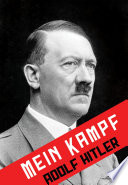
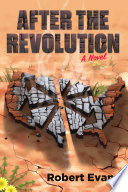
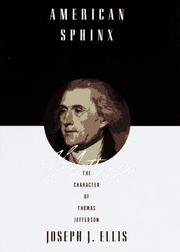
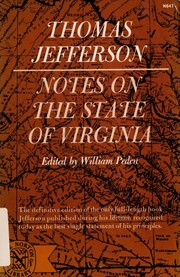

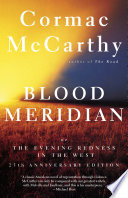
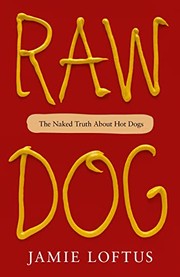
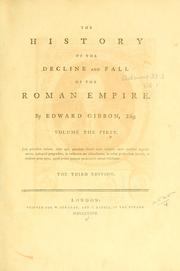
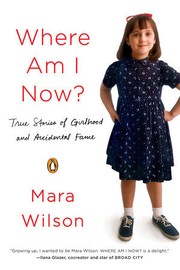
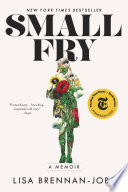
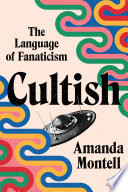
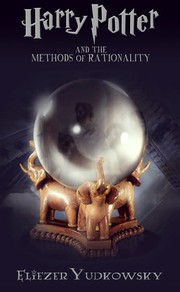
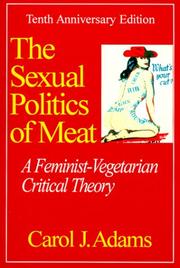
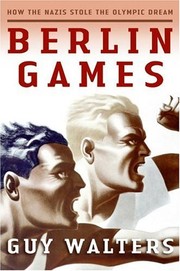
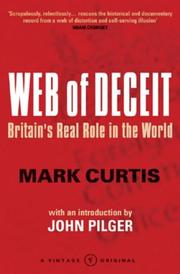
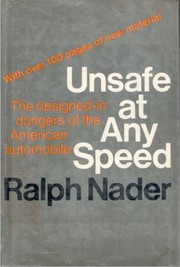
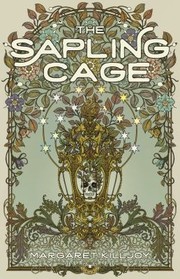
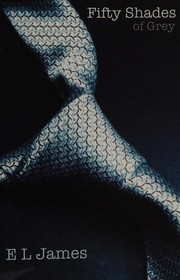
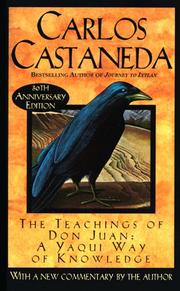
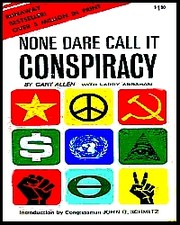
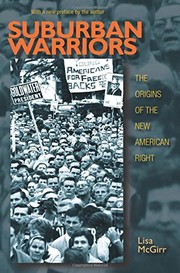
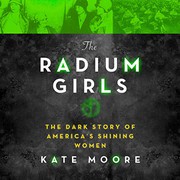
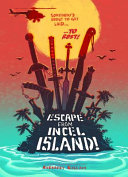
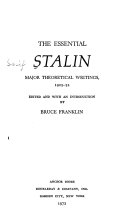
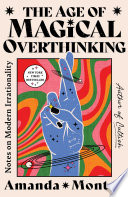

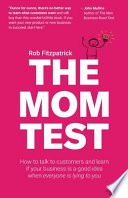

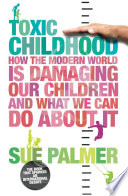
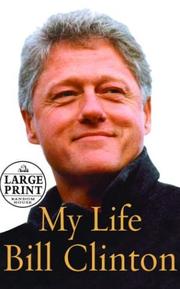
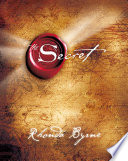
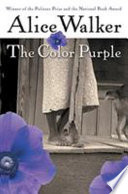
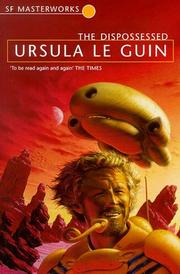
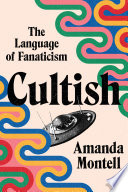
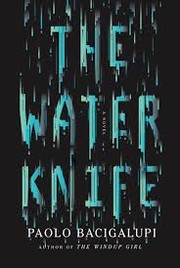
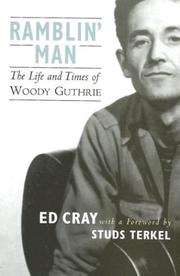
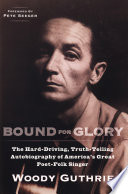
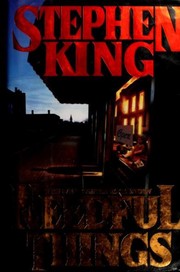

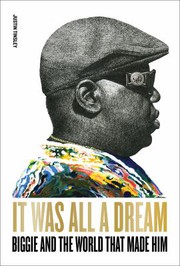
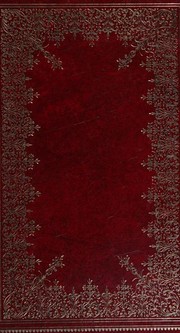
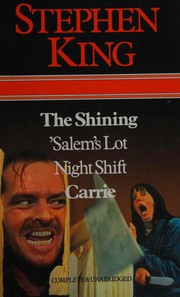
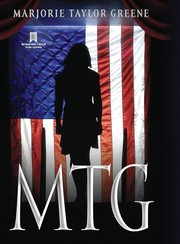
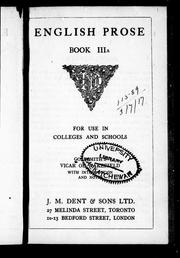
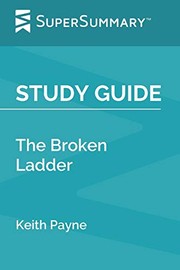
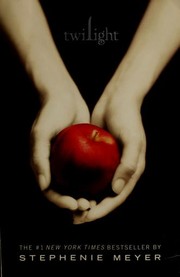
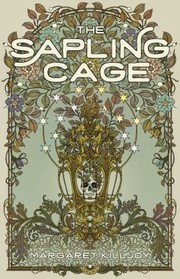
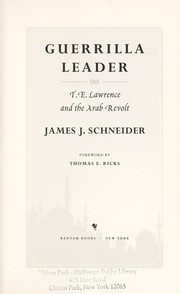
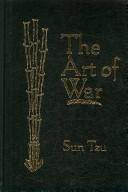
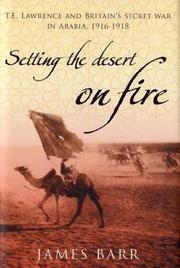
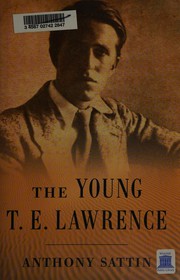
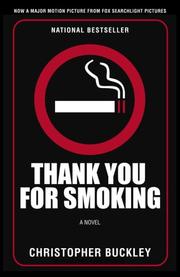
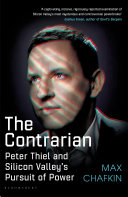
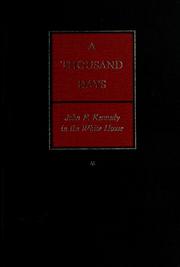
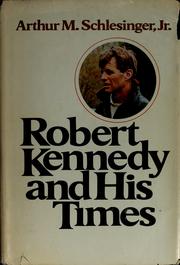
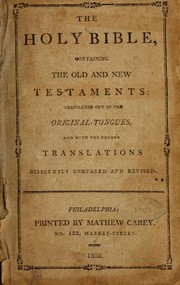
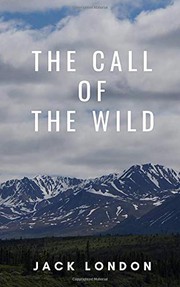
![A State-by-State History of Race and Racism in the United States [2 volumes] Cover](https://mentionedinpodcasts.com/media/books/423f755c-9fe0-0ef8-4dc4-1359f625fc4f.jpg)
